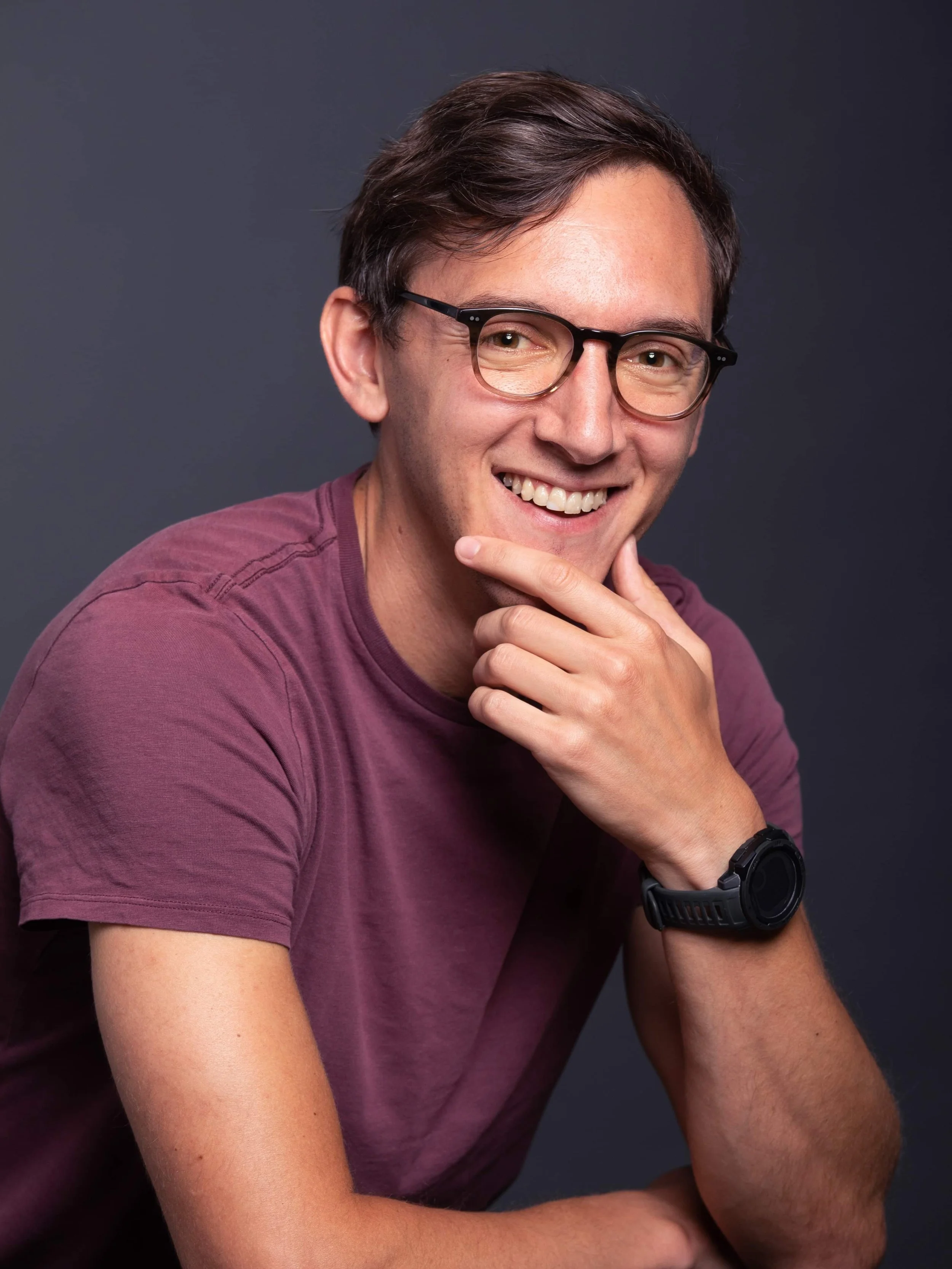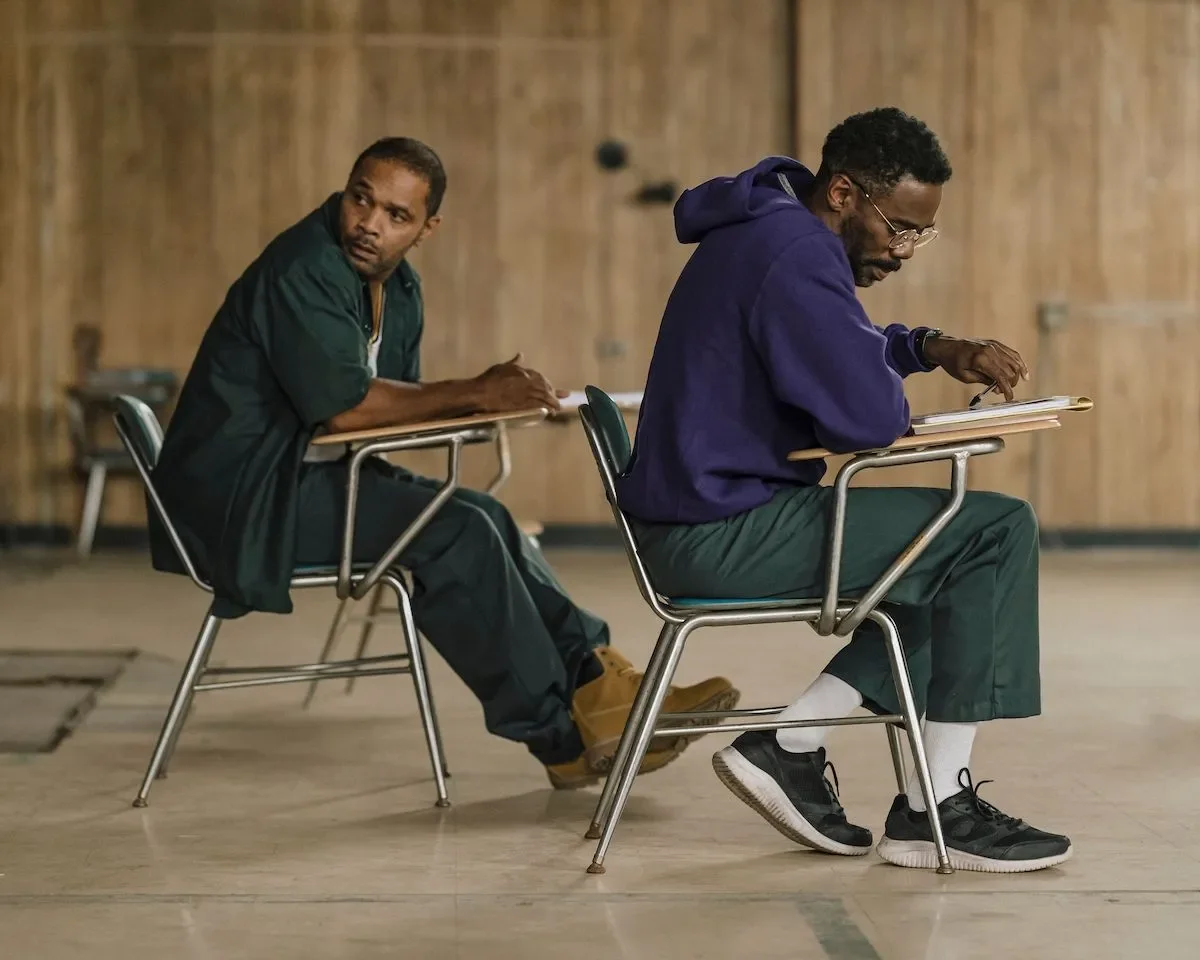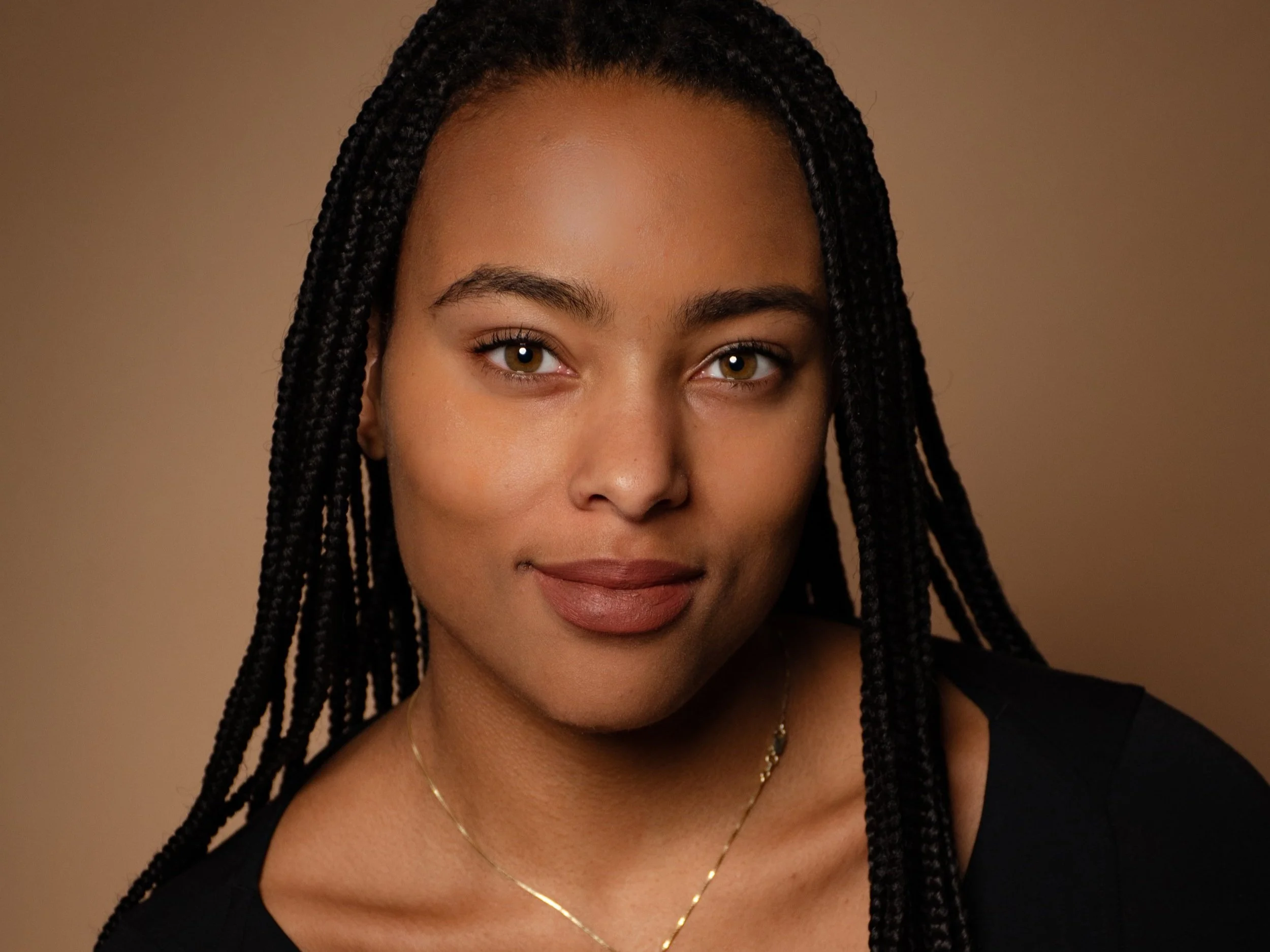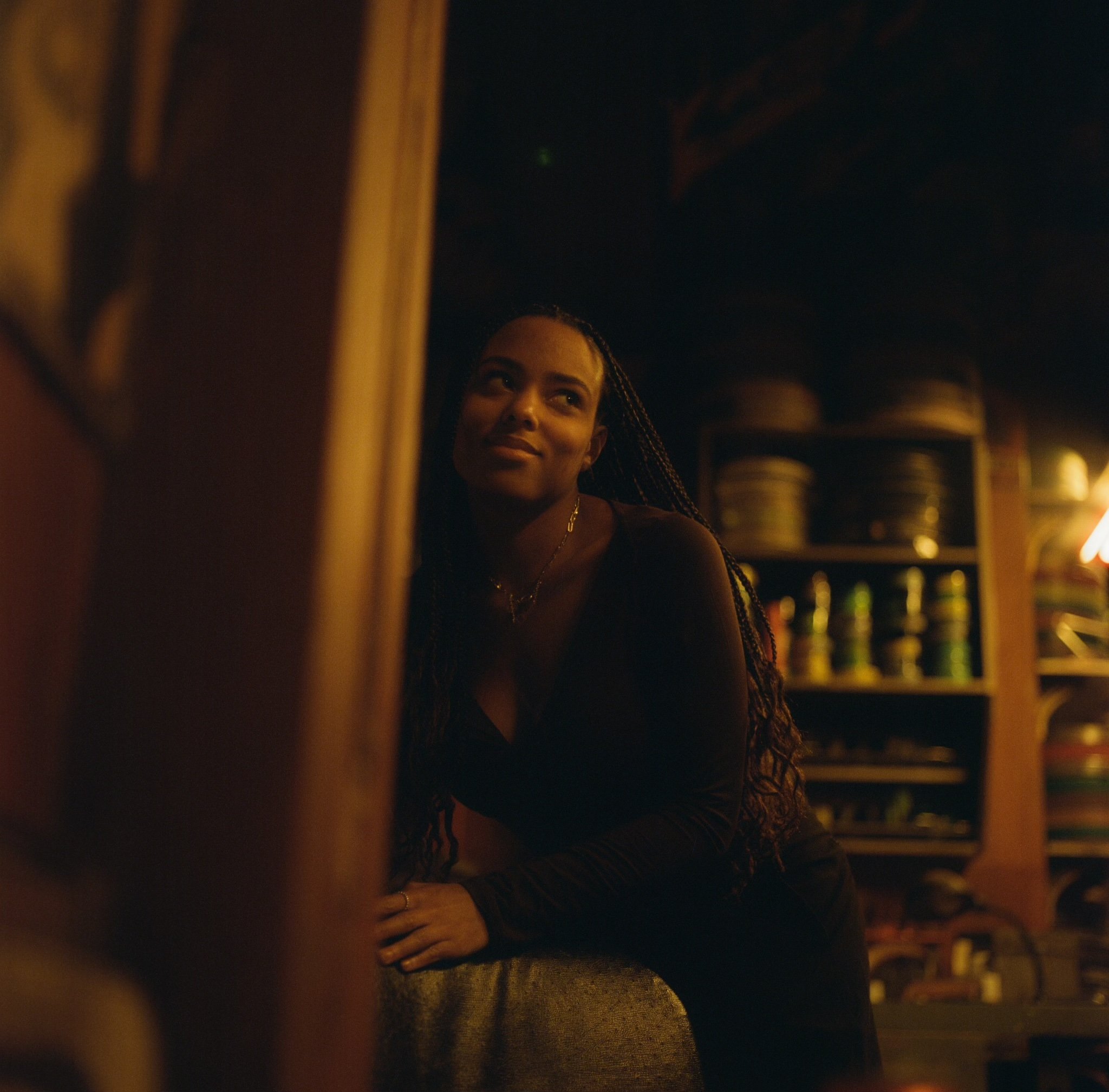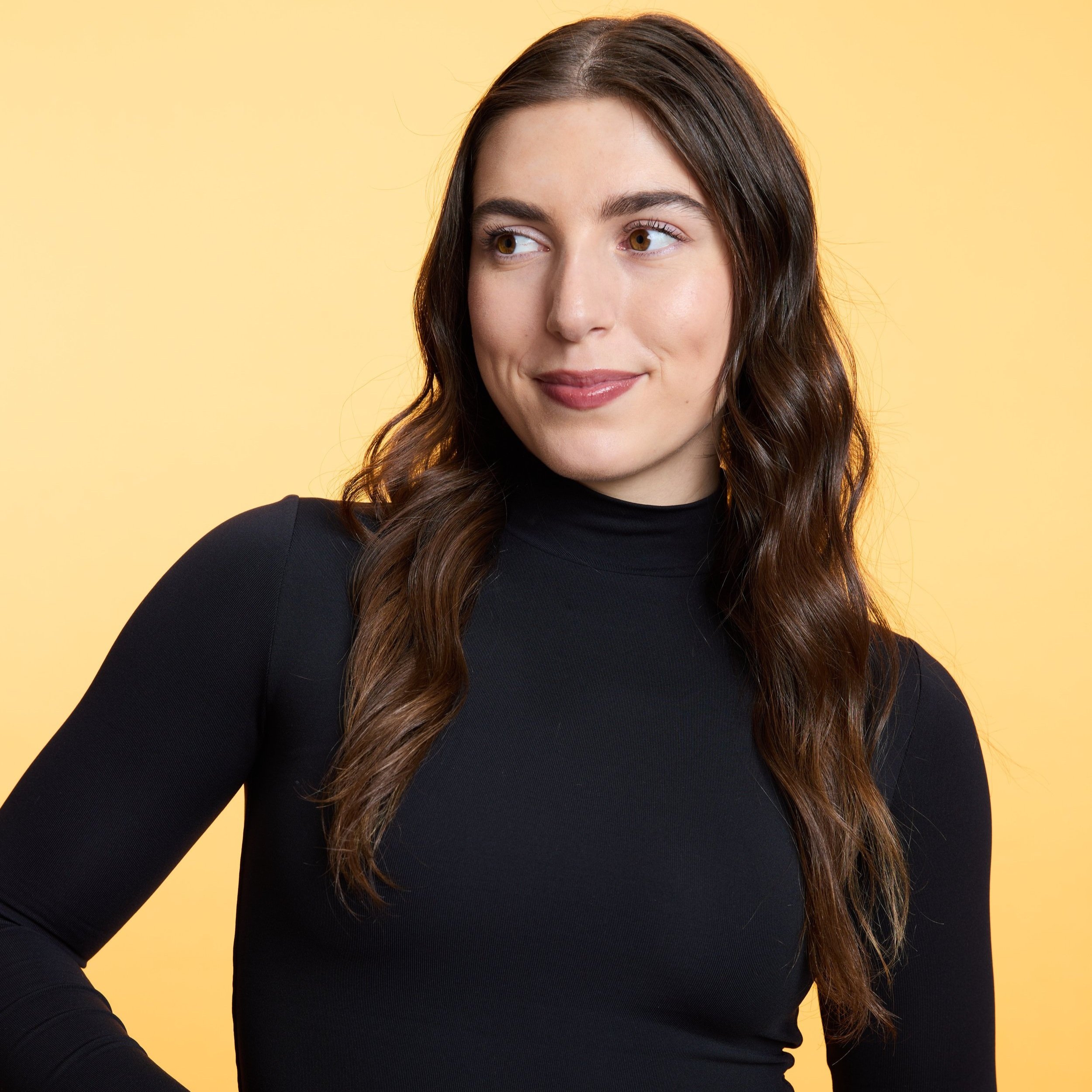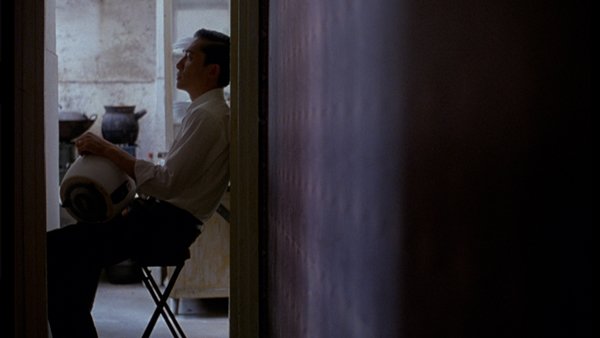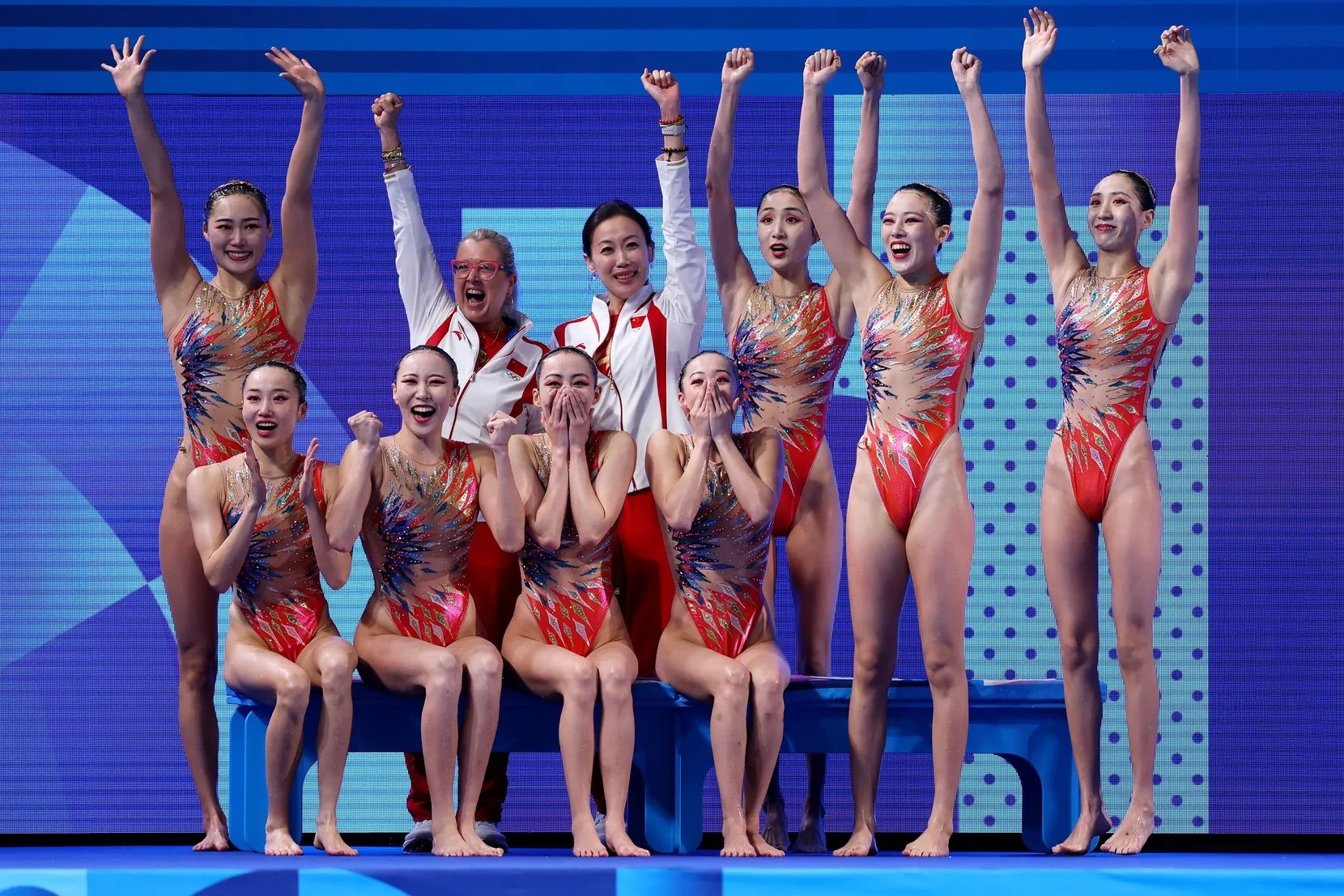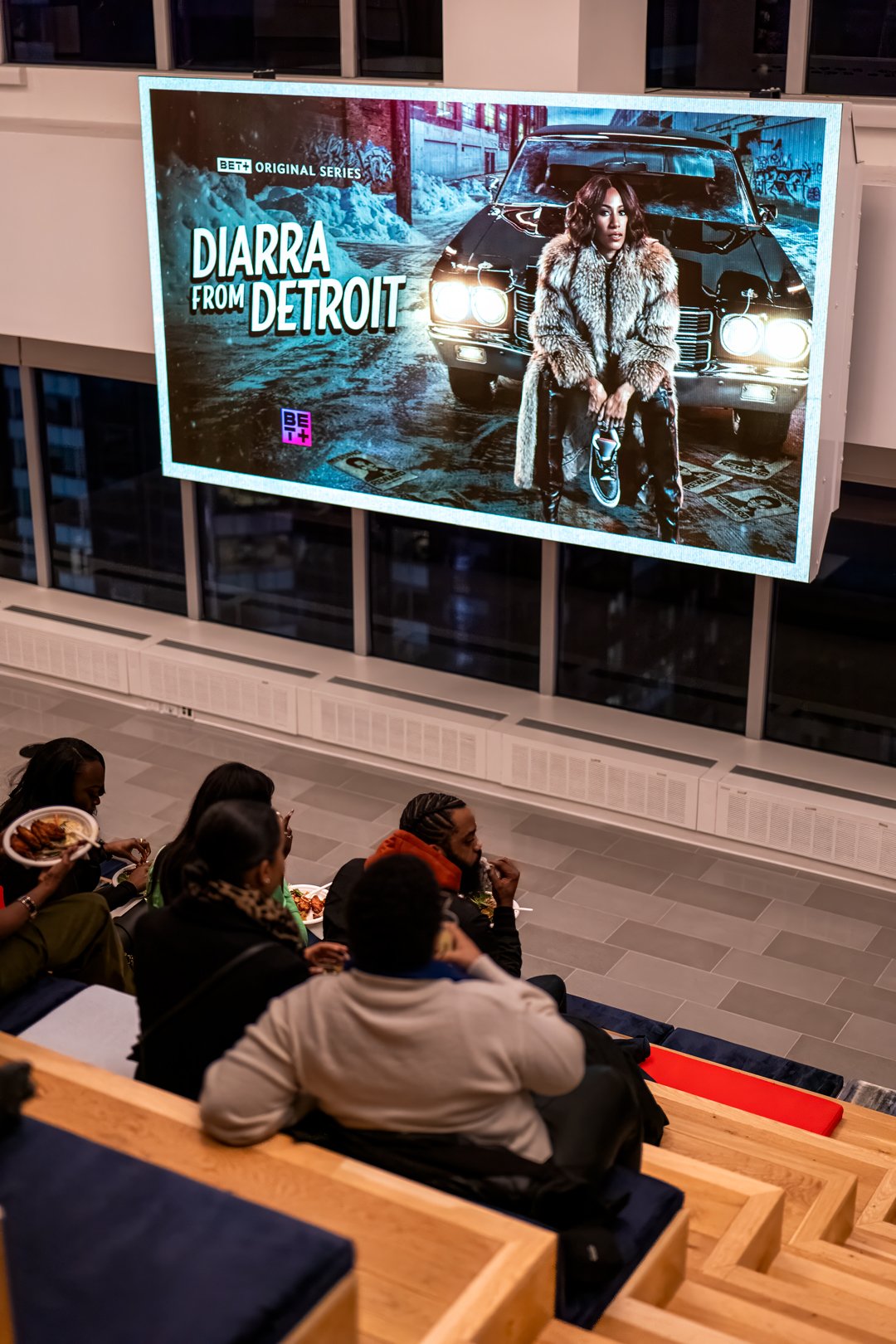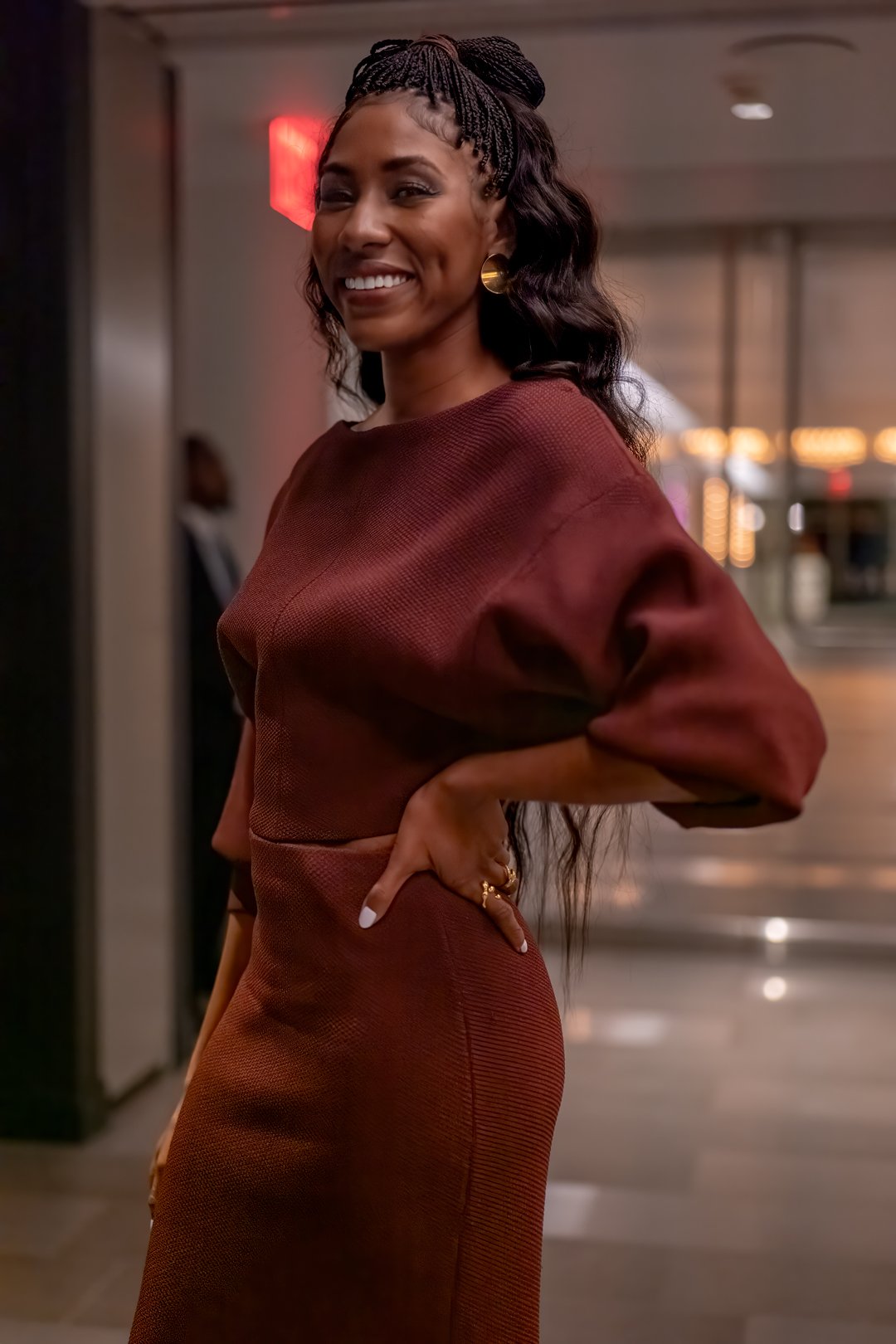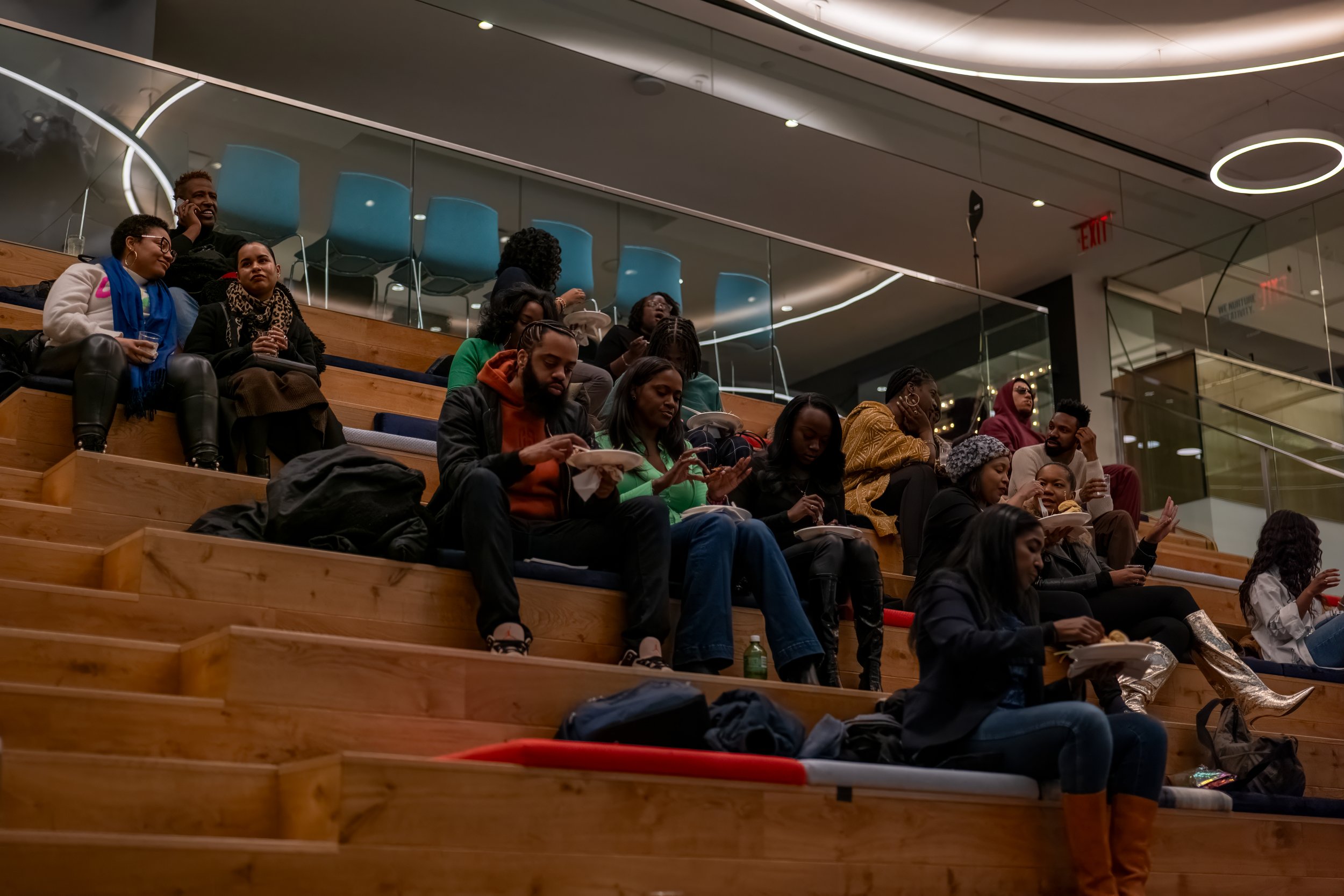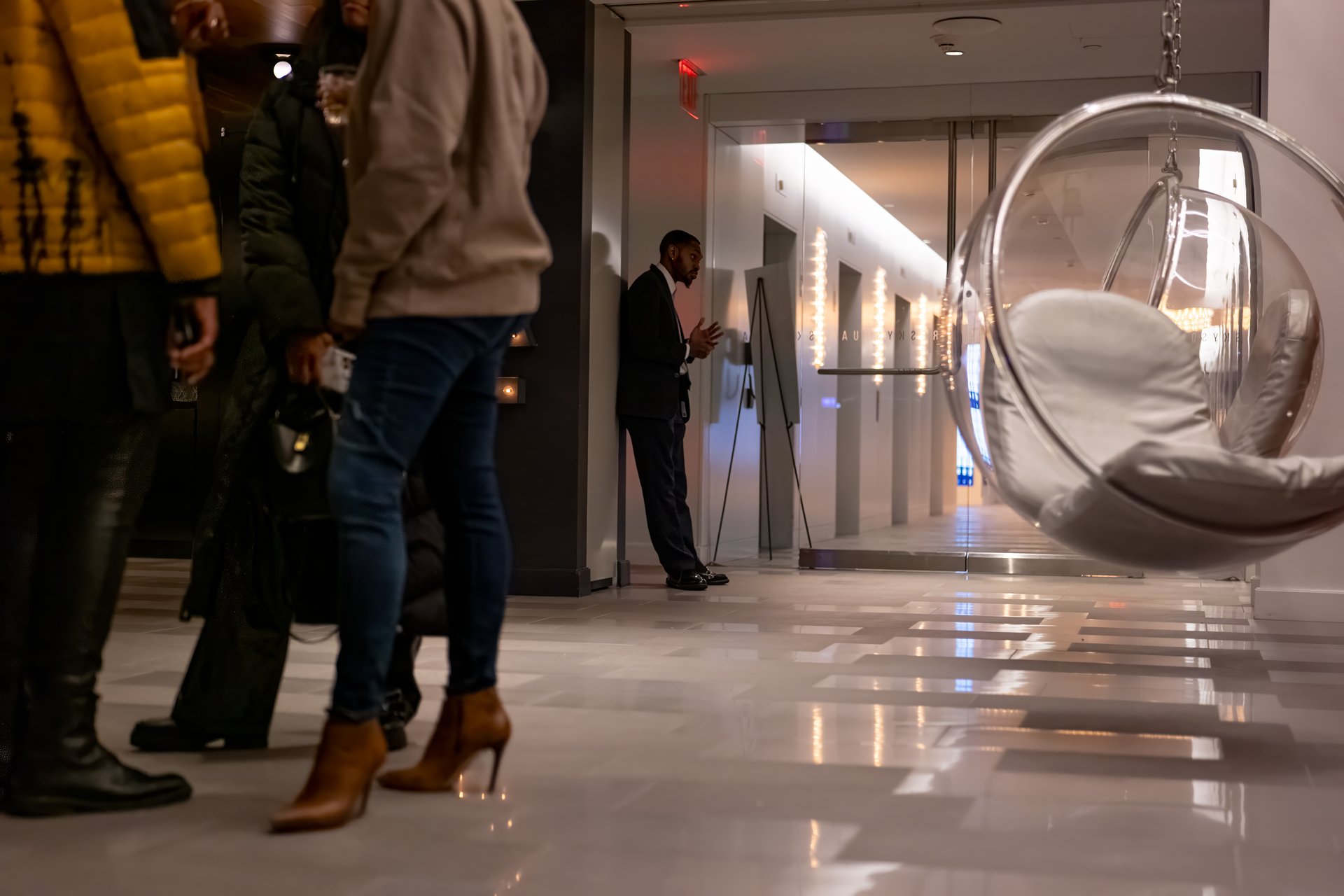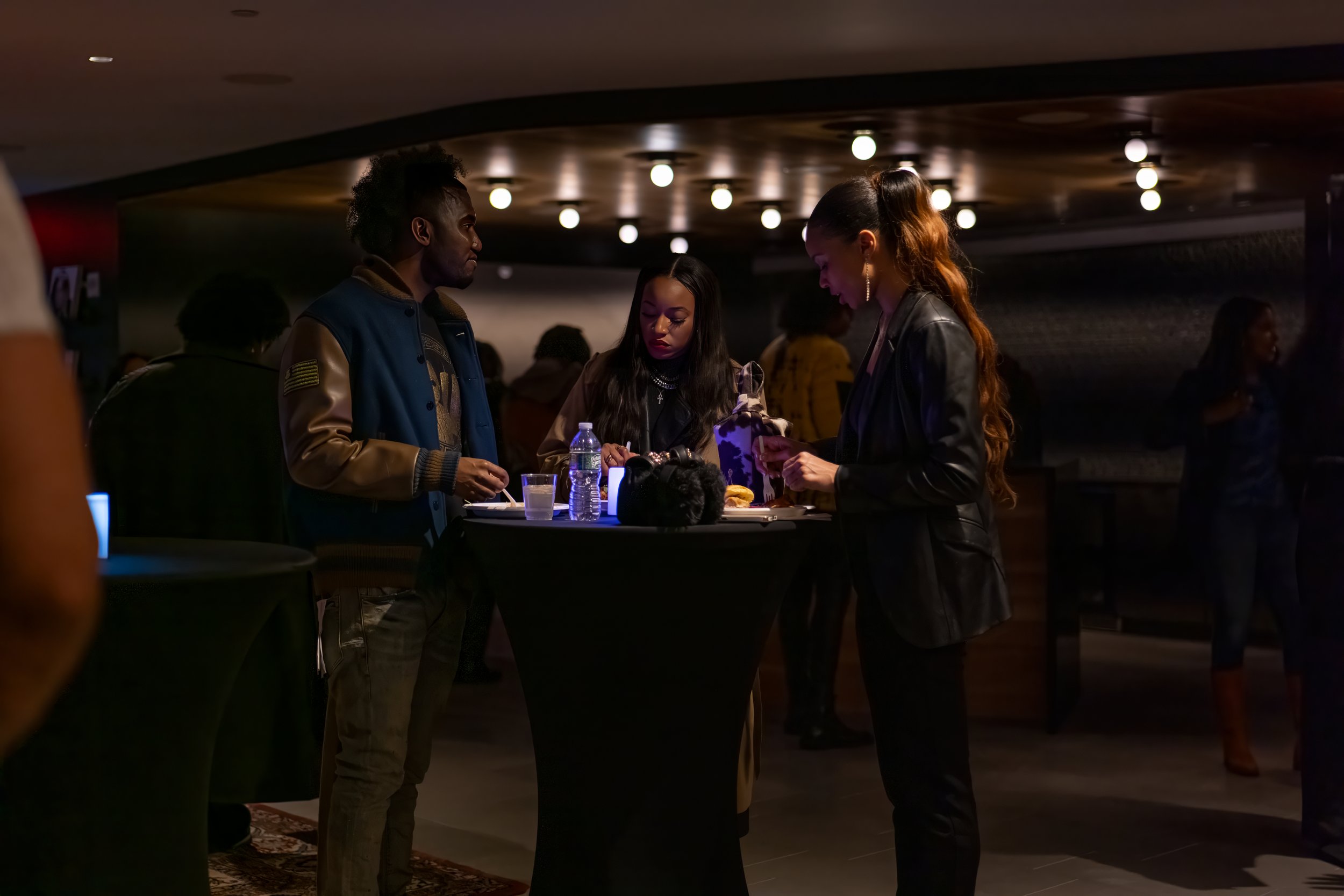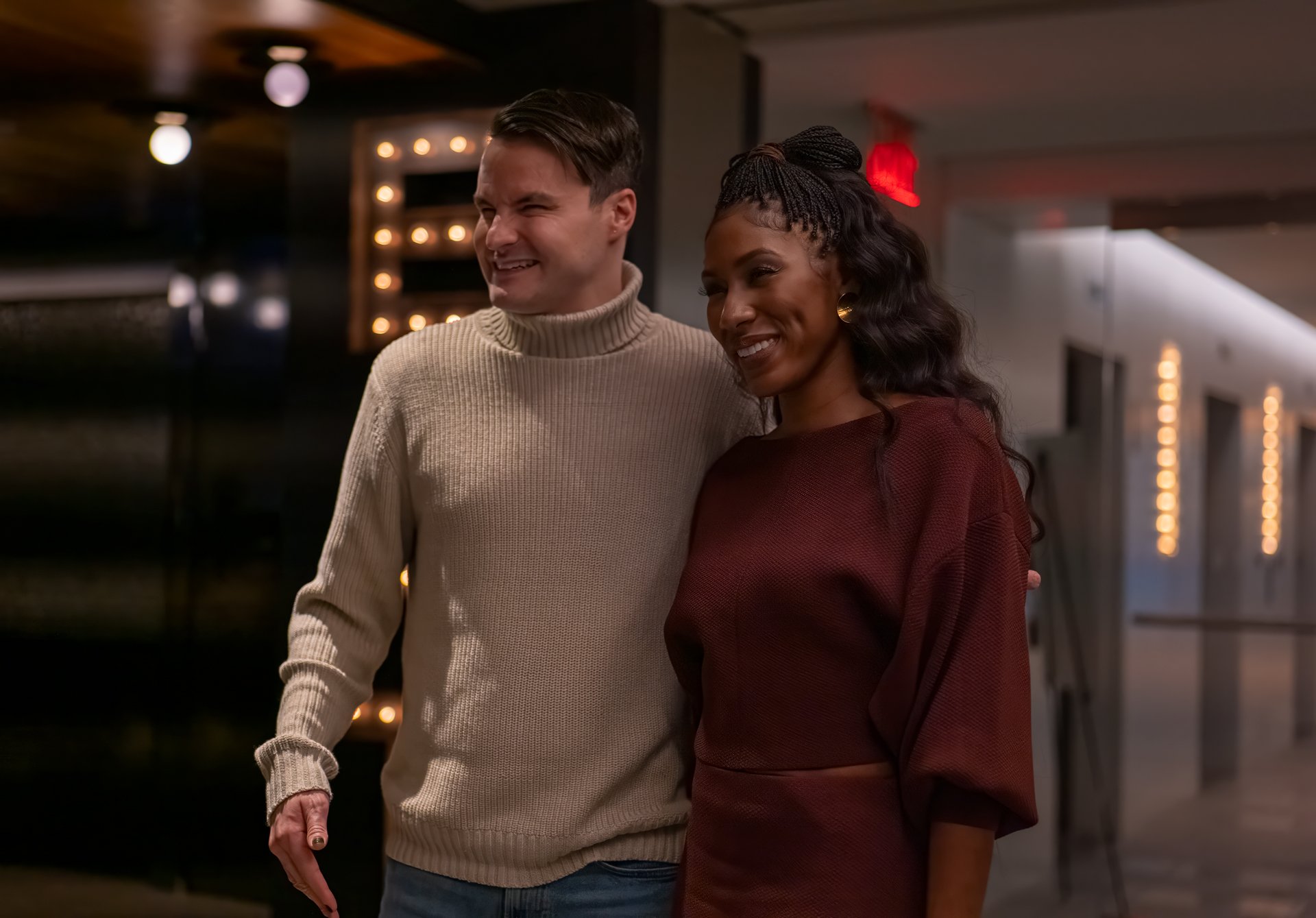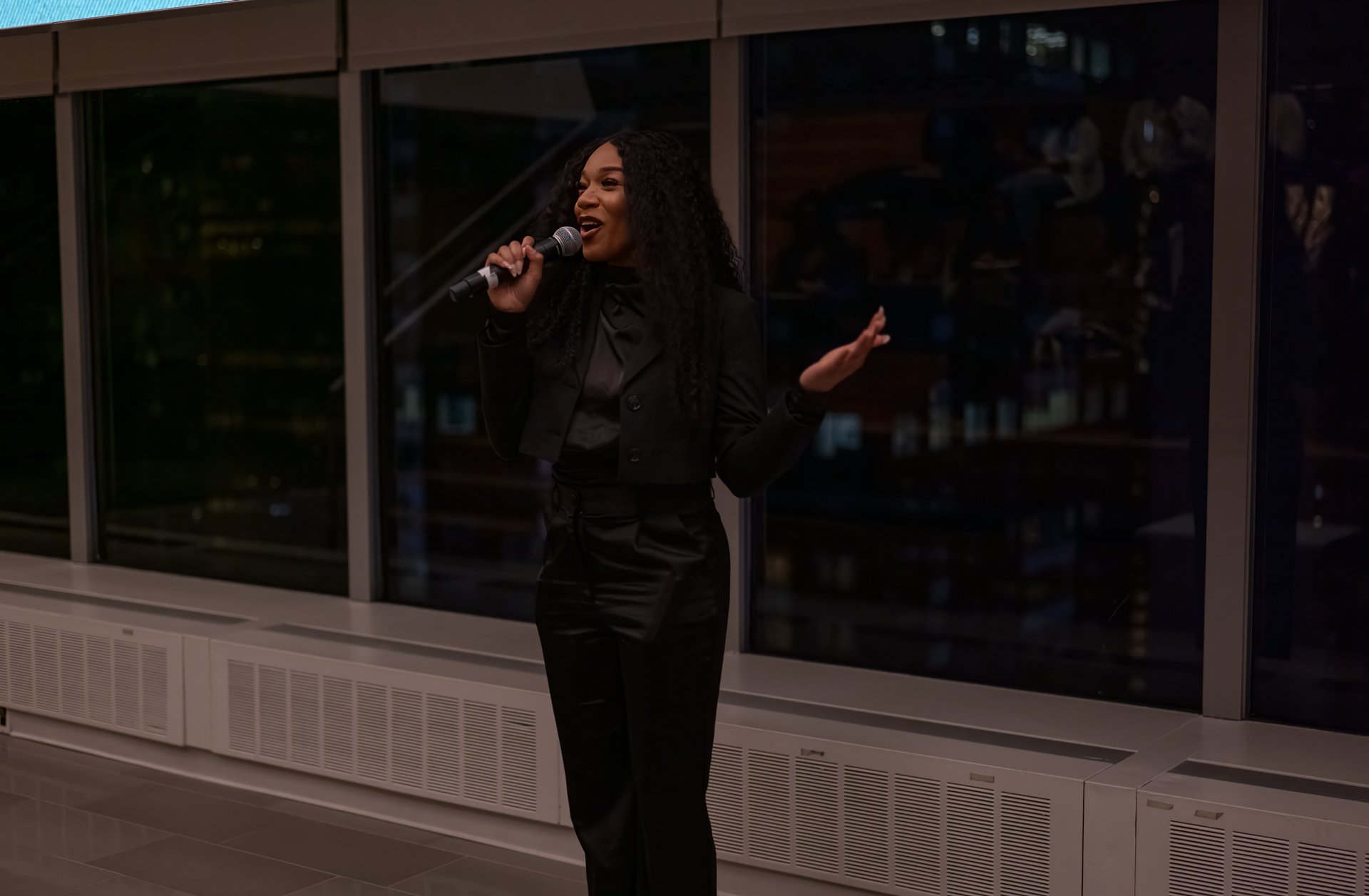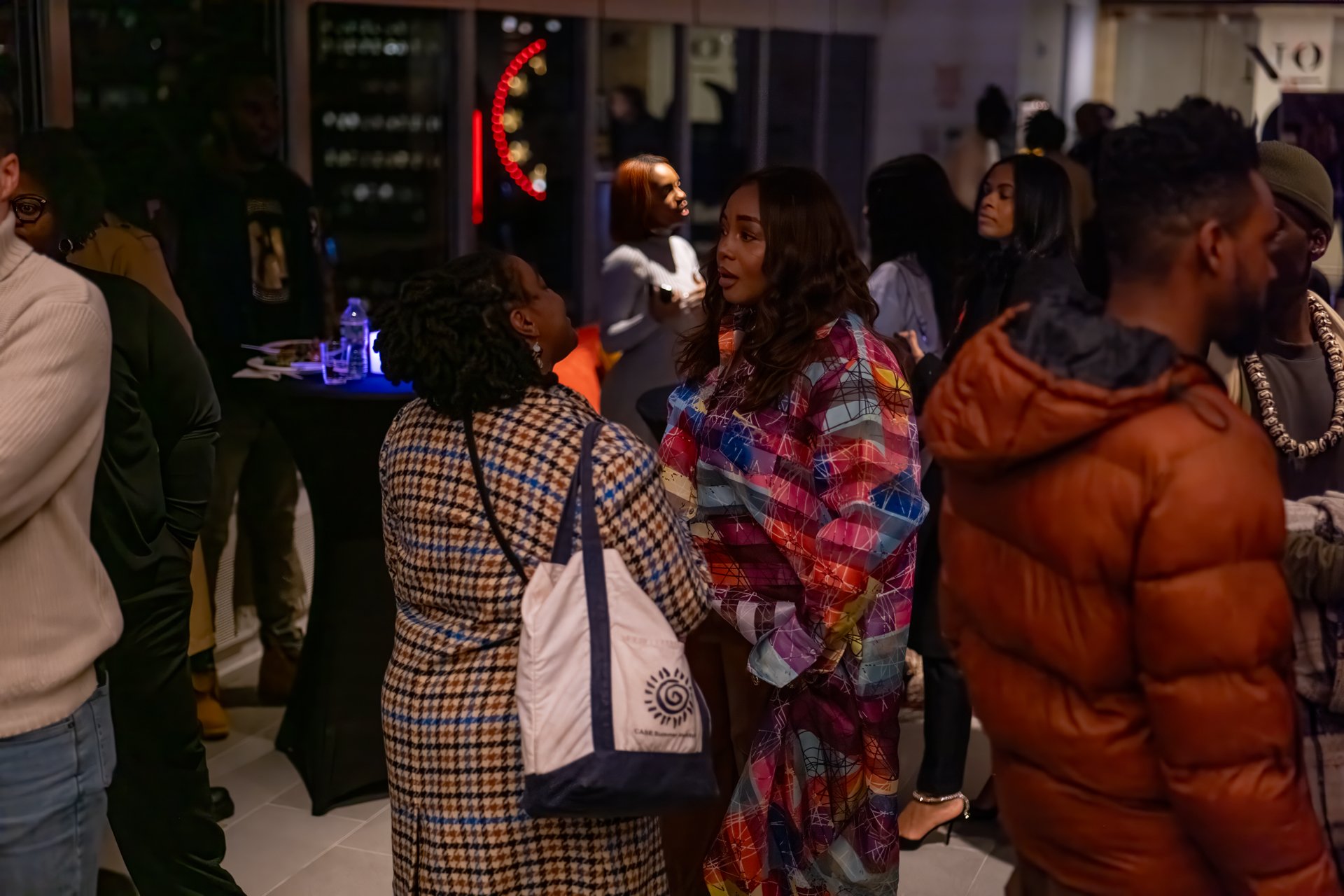BFF FILM & FESTIVAL BLOG
Netflix’s AlRawabi School for Girls Explores the Dangerous Price of Seeking Justice
AlRawabi School for Girls is a bold Netflix drama that explores justice, trauma, and power through the eyes of teenage girls in a patriarchal society. A gripping and thought-provoking watch.
Have you ever thought about how much time girls spend trying to be invisible? To stay quiet, likable, safe—even if it means living in secret? Now imagine doing that in a world where being seen could destroy your life, or where standing up for justice means breaking the rules of a society that’s against you.
Welcome to AlRawabi School for Girls, a Jordanian Netflix series created by Tima Shomali. It’s not just a high school drama. It’s a reckoning with morality, power, and what it really costs to fight back. We meet Layan, the high school bully—full of confidence and a privileged girl coming from an influential family, especially since her father is a powerful man who has authority over the school. But what makes her truly dangerous is her anger and the constant need to get what she wants at any cost, using her popularity as a weapon.
Layan throws shade, spreads rumors, and lets her two best friends help do the dirty work. She targets Mariam through psychological warfare. Layan thinks she has all the power to do what she desires because she’s never held accountable. When Layan and her best friends corner Mariam and beat her up, something in her breaks—but not in the way they expect. Her world doesn’t just fall apart; it explodes. The physical pain is nothing compared to the emotional shatter and trauma they’ve caused. Her reputation, her trust in authority, her sense of safety—it all collapses in seconds. And what’s worse, no one believes her—not even her own mother.
Layan’s cruelty gets out of hand. Her actions purposefully erase Mariam socially and emotionally. Teachers dismiss it. The principal gaslights her. Classmates go silent. It’s not just bullying—it begins with toxic households. So Mariam adapts. She stops begging for help and starts planning revenge in a morally ambiguous way. She begins with low-risk plays.
Then comes Mariam’s final blow. She’s no longer just seeking justice—she’s ready to tear the whole system down. Is she right? Is she wrong? She’s not a hero or a villain, just a teenage girl who’s had enough.
And just when you think she’s won, the story shifts. There’s no clean resolution—only silence, uncertainty, and a question that lingers long after the credits roll. Did Mariam break the cycle of abuse, or was what she did morally wrong?
AlRawabi School for Girls doesn’t offer easy answers—but it will make you feel something. Watch it, and then sit with it.
Written by
Hilda Anki
Holy Cow is A Wild Ride Through Cheese, Youth, and the French Countryside.
A Must-See Debut from the French Countryside
Louise Courvoisier’s Holy Cow is a bold, heart-filled coming-of-age story set in the Jura region of France. With local teens as stars, real-life landscapes, and a sharp script full of humor and heart, the film has already won major awards — including Best First Film at the César Awards.
Now streaming on Apple TV, Mubi, and more.
Totone, 18, spends most of his time drinking beers and partying in the Jura region with his friends. But when reality catches up with him (his 7-year-old sister needs care, and he needs to make a living), he sets his sights on an unlikely dream: making the best Comté cheese in the region. The prize? A gold medal at the agricultural competition and a check for 30,000 euros.
Do you know how to make Comté cheese? Neither does Totone — and that’s precisely Louise Courvoisier’s perfect excuse to take us on a delightful field trip to the French countryside to learn together.
When Parisian filmmakers create comedies about underprivileged characters facing real-life struggles, they often fall into the trap of the “bourgeois gaze.” What is the bourgeois gaze? Simply put, it’s when wealthy filmmakers tell stories about the poor in ways that are often condescending or out of touch.
That’s where Louise Courvoisier stands apart. She grew up in the Jura region (western France, right next to Switzerland), where her parents transitioned from careers in the arts to working in agriculture (and passed both worlds on to her). Holy Cow, her first feature film, isn’t autobiographical, but it’s rooted in the people and places she knows intimately. Years of observation have been distilled into a sharp, heart-filled script full of ups and downs, unexpected turns, and jokes around every corner.
It’s a film about coming of age, friendship, heroism, feminism, falling in love, hating your neighbors, drinking too much, and even robbery. It’s bold, original, and refreshingly free of clichés.
As if making a movie about modern cowboys and cheese weren’t ambitious enough, Courvoisier cast only local high schoolers instead of professional actors. Their genuine accents and unfiltered energy blur the line between fiction and documentary. Clément Faveau and Maïwène Barthelemy, the film’s lead performers, both received prestigious newcomer awards for their roles.
Louise assembled her production team from the friends she made at La CinéFabrique (currently the most prominent film school in Lyon). The collaboration has proven fruitful: together, they won the Cinéfondation First Prize at the Cannes Festival in 2019 for their short film Mano a Mano (2018, 23 min). Holy Cow went on to win Best First Film at the 2025 César Awards (the French Oscars) and the Prix de la Jeunesse at the 2024 Cannes Festival.
Holy Cow is a must-see. It’s currently available to rent on Apple TV, Mubi, and other major streaming platforms.
When is Courvoisier’s next film coming out? We don’t know, but we’ll be first in line.
Written by
Clément Roux
Born and raised in France, Clément recently moved to NYC to follow his dream of becoming a producer.
Sing Sing is a Powerful Film about Redemption and Second Chances
A24’s Sing Sing is a powerful, true-to-life film about hope, art, and second chances—featuring formerly incarcerated actors and a breakout performance by Colman Domingo.
If you search for reviews of Sing Sing,, you’ll find almost nothing but four-star ratings—and for good reason. This film earns every one of them. Sing Sing is an A24 film directed by Greg Kwedar, and it tells a deeply moving story of a man in prison who finds hope, purpose, and brotherhood through an arts program. Based on true events, many of the characters in the film are portrayed by formerly incarcerated individuals playing fictionalized versions of themselves, adding a raw authenticity that you can’t fake.
At the heart of the film is Colman Domingo, a powerhouse of a performer whose presence on screen is always electric. If you’ve been watching TV or movies recently, you’ve probably seen him—he’s everywhere, and deservedly so. But Sing Sing doesn’t belong to just one man. The film also stars members of the Rehabilitation Through the Arts (RTA) program, a real-life initiative that brings dance, theater, writing, jazz, and more to incarcerated people across New York State.
Currently active in 10 correctional facilities, RTA has proven results—less than 3% of its participants return to prison. In Sing Sing, at least 85% of the cast has experienced incarceration firsthand. That reality is felt in every performance. The film was shot in a former correctional facility in the Hudson Valley, grounding it even more in truth.
Clarence “Divine Eye” Maclin (left) and Colman Domingo in “Sing Sing” (Photo courtesy A24).
I was fortunate enough to see the film early as part of the SAG Awards nominating committee, and from the first scene, I knew it was something special. It’s already earned a place in my personal top 10 films—and I’m not alone. Both the National Board of Review and the American Film Institute have named Sing Sing one of the top ten films of 2024.
Every actor delivers an emotionally resonant performance. You feel the stakes. You feel the weight of the past and the spark of something new. The film doesn’t just tell a story—it invites you into a community that has found healing through art.
One of the most groundbreaking aspects of this production is its commitment to equity: everyone on set, from Colman Domingo to the production assistants, received the same wage. This radical model—called community-based filmmaking—also offered the cast and crew an opportunity to share in the film’s profits.
Beyond its theatrical release, Sing Sing was screened in over 1,100 correctional facilities, bringing its message full circle to those who might need it most.
What stayed with me long after the credits rolled is the reminder of how essential human connection is—and how art can be a lifeline during the darkest moments. Themes of hope, love, community, and resilience pulse through every frame of the film.
With a modest budget of just $2 million, Sing Sing delivers a message that could change lives. It’s a deeply human, quietly revolutionary film. I hope it’s just the beginning of a new wave of stories that center compassion, community, and the power of second chances.
Written by Austin Brown
Austin is a SAG AFTRA actress based in Brooklyn NY. While auditioning, her day jobs are a stand in and Photo double for T.V Shows, Movies and commercials. She enjoys running marathons, pilates, & shopping. Before the film industry, she graduated with two business degrees from the Fashion Institute of Technology.
Adolescence is an Honest Look at What Kids Are Really Going Through Today
Netflix’s Adolescence is a beautifully shot, emotionally intense series that doesn’t shy away from the harsh realities young people face today. In this reflection, I share why the show moved me so deeply—and what it reveals about the quiet ways we continue to fail our kids.
Adolescence is a raw and honest look at how a community’s neglect can shape—and completely shatter—the lives of its young people. From the very beginning, I felt it in my chest. The whole show is heavy, but so beautifully done. The way it’s shot, the way you feel everything that’s happening—it’s all so visceral. That sense of discomfort, of this is life and we keep going, even when everything in you wants to look away.
Created by Jack Thorne and Stephen Graham, Adolescence follows a 13-year-old boy accused of a violent crime. From there, his family, therapist, teachers, friends, and investigators try to piece together how it all unfolded. Thorne’s deep dive into incel culture sheds light on the toxic messages floating around online spaces, just waiting to latch onto young, confused minds.
But what I appreciated is that the show doesn’t just blame social media. It digs way deeper—showing the layers of systems failing kids over and over again. Overworked or absent parents. Teachers with too much on their plates. Adults who never really grew up themselves.
I was glued to the screen—thinking about growing up with parents who were always working. And like Jamie, so many of us end up learning about the world from our peers, not adults. This shapes how we relate to people, how we love, how we lash out. It leaves marks—sometimes really distorted, mean ones.
And then there’s the scene with the therapist (Erin Doherty). Whew. That was tough. Therapy is supposed to be this safe space, but instead it felt cold and clinical—like another system going through the motions. No real connection. No, “I see you.” No, “You’re actually a really good-looking, thoughtful kid.” Sometimes that kind of simple validation can literally save a life. That scene really stayed with me—it’s such a clear example of how we’re failing our youth with this lack of emotional literacy.
Another moment that hit me hard was how little we get to know the victim. Her life, her world, what she might’ve been going through. But even in those small glimpses, you can feel that she, too, was walking through adolescence alone. It’s heartbreaking. You realize Jamie and the girl he hurt were both failed by the same systems—both trying to figure out life without a map.
One moment that made me especially mad was when Jamie called to share a big decision he’s made, and the family instantly pivots to worrying about the dad’s feelings. Like—are you serious right now? Even in that moment, no one was really seeing Jamie. That emotional neglect ran so deep.
The show’s been stirring up conversations in the UK—lawmakers, parents, everyone rethinking things like smartphone access for kids. But honestly, the phones aren’t the full story. That’s what Adolescence gets so right. It’s not just about tech. It’s about underfunded schools, overworked parents, and a complete lack of tools for emotional development.
What makes this show hit so hard is how real it feels. Jamie’s descent into isolation and violence doesn’t feel extreme—it feels familiar. Like something that is happening right now, down the block.
And it doesn’t tie everything up with a neat bow either. It doesn’t offer some magical solution. It just says: this is where we are—and we all have to take a look in the mirror. Because emotional neglect is everywhere. Quiet. Easy to miss. But it’s there. And it’s dangerous.
In the end, Adolescence is about the impact of our mistakes—personal and collective. It asks us to show up. To listen better. To be more present for the young people in our lives. It asks: Are we paying attention? Or are we going to keep missing the signs until it’s too late?
The show is well produced, acted, shot, and written. But it’s more than that. It’s a mirror—and a plea for empathy. And it moved me deeply.
You can visit Netflix’s Tudum site for everything you need to know about the series including trailer.
written by Kweighbaye Kotee
September 5 Screening & Q&A at Paramount
Awards season is in full swing, and from October to February, it’s an exciting (and slightly overwhelming) time packed with screenings, Q&As, and filmmaker conversations. Each week, BFF receives lots of invites—it’s hard to keep up! But one of the perks of being a BFF volunteer and writing for the blog is getting access to some incredible films during this time.
Earlier this month, I had the opportunity to attend a screening of September 5, hosted at Paramount’s office right off Times Square.The film, which takes place during the 1972 Munich Olympics, recounts the harrowing events of the hostage crisis in which 11 Israeli athletes were taken captive by a Palestinian terrorist group—all from the perspective of journalists covering the crisis. The film’s tension-filled narrative unfolds solely in the ABC control room, offering a unique lens while exploring the intricate role of media in such a high-stakes situation.
Q&A with writer/producer/director Tim Fehlbaum, writer Moritz Binder.
Following the screening, I attended a Q&A session with the film's director, Tim Fehlbaum, and co-writer, Philipp Trauer where they shared insights into their creative process and the themes they sought to communicate. What stood out most was the filmmakers’ emphasis on realism, their deep commitment to authenticity, and their exploration of the broader implications of media in crisis journalism.
One of the most striking aspects of September 5 is its setting. The entire film takes place within a control room, where monitors serve as the only window to the outside world. This restrictive location was a deliberate choice to immerse the audience in the limitations faced by journalists during the crisis. Also in the industry it’s called a “Contained Thriller”.
Fehlbaum explained that the biggest constraint in filming was also the characters’ biggest constraint: they were forced to make critical decisions based on incomplete information—just as the filmmakers told a story from afar. This decision not only serves the plot but also reflects the emotional weight carried by journalists attempting to piece together a fragmented truth.
Throughout the discussion, the filmmakers underscored the importance of media during the event. This was the first time a terrorist attack was broadcast live, and newsrooms were the lifelines through which the world learned about the hostage crisis—yet the coverage was often piecemeal and contradictory. Fehlbaum and Trauer pointed out that one of the core challenges of the story was portraying the limitations of journalism, particularly in a world where truth is elusive and fragmented.
This theme of fragmented truth permeates the film, as the characters—journalists, government officials, and security personnel—are all working with partial information. The filmmakers wanted to show that their characters were, in essence, facing the same challenges as the world’s journalists at the time. The lack of clear answers from the outside world amplified the sense of isolation and urgency within the control room, adding depth to the narrative’s emotional impact.
Another unique aspect of September 5 is its attention to detail in portraying the control room as a real workplace environment. Fehlbaum and Trauer spoke at length about their commitment to making every element of the setting feel authentic. They wrote background scripts for the extras in each scene, giving them specific tasks and arcs to create a sense of real-time work. This effort was not just about filling the background with activity; it was about creating a living, breathing office where every individual had a role in the unfolding crisis.
This level of detail helped elevate the film from a simple historical drama to a compelling, immersive experience. The filmmakers weren’t just interested in telling a story about a tragic event; they were also keen to convey the atmosphere and human dynamics of working under intense pressure. By focusing on the realism of the workplace, they invited the audience to experience the emotional weight of the events in a more visceral way.
In sum, September 5 is more than just a recounting of a historical tragedy—it’s a film that explores the complexities of journalism, the pursuit of truth, and the emotional toll of working under pressure. Through the isolated environment of the control room, the filmmakers crafted a narrative that mirrors the experiences of those tasked with covering the Munich Olympics hostage crisis—both in terms of the facts they could access and the emotional burden they had to bear. As Tim Fehlbaum and Philipp Trauer shared their creative journey, it became clear that their film is a thoughtful meditation on the challenges of understanding and communicating complex events, especially when the truth remains elusive.
What It's Like to Be a Stand-In on a Film Set
What is a Stand In?
The role of a stand-in or photo double is one you may not have heard of unless you've spent time on a film set, but it’s an integral part of the production process. When I first started in the industry, I didn’t know much about it either. A stand-in essentially substitutes for the principal actor during the setup phase, ensuring the camera, lighting, and audio equipment are properly prepared before the main actor steps in. The stand-in’s job is never to be on camera, but without us, the technical crew would struggle to get everything just right.
Because of my petite frame, I have the flexibility to stand in for both kids and adults. Stand-ins are used for a variety of tasks, such as camera blocking, lighting tests, and rehearsals, helping the crew set up the scene without wasting the actor's time.
Being a Stand-In Can be a Game-Changer for Emerging Actors
While the role of a stand-in may not seem glamorous, it comes with plenty of benefits.
One of the most valuable aspects of being a stand-in is that it gives emerging actors the chance to observe professionals in action. You’re on set every day, you’re surrounded by actors, directors, and crew, and you can pick up insights and techniques that can help improve your own craft. Plus, you’re able to network with people in the industry, which can open doors to future opportunities.
Some of the projects I’ve worked on as a stand-in include Pretty Little Liars: Summer School, Love Brooklyn, and Rob Peace. These experiences have not only expanded my career but also taught me about the hard work and precision required to bring a script to life.
What is a Typical Day on Set?
My call time is different every day, so I like to arrive about 20–40 minutes early. This gives me time to eat a quick breakfast and highlight the lines for the character I'll be standing in for.
Upon arriving on set, I’m given tape with my name on it, and I receive the "sides" or call sheet for the day. The sides tell me which scenes I’ll be working on, how many setups there are, and any other specifics for the shoot. It’s always good to be prepared, so I spend some time reviewing the material for the day.
Lunch is about six hours after breakfast. Film sets are known for offering amazing food — it’s one of the perks of the job! After lunch, we continue working on camera setups, blocking, and rehearsals.
During the day, the pace can vary. Some scenes take longer to set up, while others may be shot in a matter of minutes. As a stand-in, we move quickly and adapt to whatever the crew needs. On-location shoots, I always make sure to dress appropriately for the weather — exterior shoots can be unpredictable. And when working in big cities, I prefer to carry a small fanny pack to keep my essentials with me. There’s no time for carrying a large bag around!
Flexibility is Key
In the film industry, schedules are unpredictable—wrap times can vary, and plans can change in an instant. But if you can adapt and stay ready for anything, being a stand-in can be an incredible opportunity.
So whether it’s a stepping stone to other roles or a long-term path, standing in allows you to learn, grow, and be part of the magic of filmmaking.
Austin Brown is a SAG AFTRA actress based in Brooklyn NY. While auditioning for principal work, her day jobs are a stand in and Photo double for T.V Shows, Movies and commercials. In her Free time Austin enjoys running marathons, doing pilates, and shopping. Before discovering the film industry, Austin graduated with two business degrees from the Fashion Institute of Technology.
10 Crime-Comedy Shows Perfect for Unwinding After Work
The Average Joe, BET
After a long workday, sometimes all you need is a show that lets you unwind without requiring too much brainpower. Reality TV might seem like the go-to for this kind of mind-numbing release, but listening to couples fight or the Kardashians launch yet another business to fund their private jets can sometimes be more stressful than relaxing.
If you’ve ever seen Dexter, you know that crime and comedy can make an unexpectedly great pair. Lately, there’s been a surge of shows that blend mystery, suspense, and humor into the perfect mix—keeping you entertained without weighing you down. Whether you want something to binge or simply entertain, these crime-comedy hybrids strike the right balance, making them perfect for an entertaining escape!
1. Average Joe
A regular guy stumbles into a dangerous world of crime and corruption when he discovers his father’s hidden secrets. The show’s blend of humor and high-stakes action makes for a compelling ride.
You can watch Average Joe on BET+.
2. The Flight Attendant
A chaotic, darkly comedic mystery following a flight attendant who wakes up next to a dead man and gets tangled in an international conspiracy. Its mix of suspense, humor, and Kaley Cuoco’s quirky energy makes it a must-watch.
You can watch The Flight Attendant on Max.
3. Only Murders in the Building
A smart, self-aware whodunit starring Steve Martin, Martin Short, and Selena Gomez as true-crime-obsessed neighbors solving a murder in their building. The mix of witty banter, absurd situations, and genuine mystery keeps you hooked.
You can watch Only Murders in the Building on Hulu.
4. Based on a True Story
A satirical take on America’s true-crime obsession, this show follows a couple who turn a real-life murder into a podcast. The dark humor and unexpected twists make it a fresh spin on the genre.
You can watch Based on a True Story on Peacock.
5. Diarra From Detroit
A schoolteacher turned amateur detective gets caught up in a mystery after her online date ghosts her. With a mix of millennial humor and unexpected twists, it’s a fresh and relatable take on crime-solving.
You can watch Diarra From Detroit on Bet+.
6. The Gentlemen
Guy Ritchie's signature blend of crime, comedy, and stylish action comes to TV, following a man who inherits a criminal empire. Packed with sharp dialogue and eccentric characters, it’s as entertaining as it is thrilling.
You can watch The Gentlemen on Netflix.
7. Poker Face
Natasha Lyonne plays a human lie detector on the run, solving murders in a modern take on the classic detective format. Each episode delivers a clever mystery with Lyonne’s dry wit making it all the more fun.
You can watch Poker Face on Peacock.
8. Wednesday
A gothic mystery-comedy following Wednesday Addams as she investigates supernatural crimes at her eerie boarding school. The show’s deadpan humor and murder-mystery elements create the perfect mix of spooky and funny.
You can watch Wednesday on Netflix.
9. Mr. & Mrs. Smith
A reboot of the classic spy comedy, following a couple who fake their marriage to take on high-stakes missions. The show mixes action, romance, and dark humor in a stylish and thrilling way.
You can watch Mr. & Mrs. Smith on Amazon Prime.
10. White Lotus
While not a traditional crime-comedy, this satirical murder mystery set at luxury resorts is packed with biting humor, social commentary, and suspenseful intrigue. The slow-burn unraveling of each season’s crime keeps you hooked.
You can watch new season of White Lotus starting February 16th on Max.
Article written by Taylor Jenkins.
How Wong Kar-wai’s Editing in In the Mood for Love Enhances Its Emotional Depth
Wong Kar-wai’s classic film, In the Mood for Love, depicts the love story between neighbors whose spouses have been cheating on them. It illustrates the theme of passion with restraint amidst the backdrop of 1960s Hong Kong. Along with the film’s brilliant performances, lighting, scoring, and script, the film’s use of editing enhances the forlorn tale of love we see on the screen.
Wong Kar-wai’s classic film, In the Mood for Love, depicts the love story between neighbors whose spouses have been cheating on them. It illustrates the theme of passion with restraint amidst the backdrop of 1960s Hong Kong. Along with the film’s brilliant performances, lighting, scoring, and script, the film’s use of editing enhances the forlorn tale of love we see on the screen.
Edited by William Chang Suk-ping, a long time collaborator of Wong Kar-wai, the film employs rhythmic editing throughout to enhance the emotional state of the titular characters, Mrs. Chan and Mr. Chow. This deliberate use of editing not only reflects their evolving emotions but also underscores the gradual development of their relationship.
WATCH OFFICIAL TRAILER I 20TH ANNIVERSARY RESTORATION
In the Mood for Love is a slow-paced film. The first half incorporates multiple long shots of Maggie Cheung and Tony Leung just walking, either up the stairs or down the street. For example, in the scene where we see Mrs. Chan buying noodles [14:47–16:07], there are only seven shots, roughly averaging a cut every ten seconds. Most of this scene comprises shots of longer duration. This choice of rhythmic editing complements Maggie Cheung’s pace as she delicately climbs up and down the staircase. It forces the audience to notice her every move, and we see how poised and unwavering she is throughout. This illustrates how careful Mrs. Chan’s every movement is—how she is aware that she is always being watched by the people around her. She is not one to let her guard down. Maggie Cheung’s character plays the role of the perfect woman who does what is expected of her as a well-respected woman of Hong Kong. Through the long takes and a minimized number of cuts, even the action of her dabbing the sweat carefully off her forehead [15:19] is given attention. The audience notices how carefully she proceeds with this action, and we see how Maggie Cheung does this with very subtle expressional changes. This once again feeds into Mrs. Chan’s desire to fit in as the perfect Hong Kong beauty.
As the movie proceeds, Mrs. Chan finds herself attracted to Mr. Chow. As they spend more time together reenacting the affair of their spouses, the line between reality and make-believe becomes blurry. There comes a point where Mrs. Chan can no longer hold back the feelings she has for Mr. Chow. Mrs. Chan receives a call from Mr. Chow and races toward him. In this pivotal scene, Wong Kar-wai changes his style of editing. In this scene, she is walking up and down the staircase again, but there is a difference from the previously mentioned scene. Here, she is not holding back. She runs frantically, paces up and down, pauses, then continues. During this scene, we see Maggie Cheung’s character in a very raw state. We see her as a lover donning red rather than the woman tightly restrained by her cheongsam and society. The editing in this scene brings the change into focus. There are roughly five shots in the first half of this scene [54:06–54:11], averaging around a cut per second. There is then a long shot of Mrs. Chan catching her breath. This is followed by another episode of frantic movements [54:19–54:26], averaging around a cut every 0.77 seconds. This is very fast compared to the film’s overall average. Since the shots are in rapid succession, the audience is not given much time to digest this moment that Mrs. Chan experiences. It shows how fleeting the one time she almost gave in to her love was, and we return once again to the reserved Mrs. Chan.
The use of rhythmic editing is not limited to singular character development but also aids the tempo between Mrs. Chan and Mr. Chow’s interactions. Interactions between Maggie Cheung and Tony Leung’s characters are enveloped in an air of mystery. The actors perform in a way that suits their characters’ desire to not truly show what they are feeling at any given moment. It is the subtle glances and movements that really deliver their feelings. For example, the stirring of a teacup or the smoking of a cigarette both indicate worry or stress, all while they maintain stone-cold stares. Wong Kar-wai has carefully chosen the way the individual shots are aligned during the scene where Mrs. Chan and Mr. Chow first discuss the affair of their spouses [27:50–30:00]. As the conversation steadily progresses, the number of cuts increases. As the final questions, to clarify any lingering doubts they had, are asked, Wong Kar-wai uses the whip pan. This choice of editing punctuates the tempo of their conversation and heightens the tension of the topic of discussion. After this whip pan, there is a long take of Tony Leung as he and the audience are allowed to digest the news received. This mixture of shorter shots, whip pans, and long shots heightens and then diffuses the tension. It complements the emotional state of both characters. At first, they are hesitant to openly discuss the affair, but as they proceed, the pace changes. Wong Kar-wai dwells on longer shots when they act, allowing the audience to take the time to study the two characters. But as the whip pans begin, we aren’t given the time to really see what they feel.
Similarly, in one of the final interactions between Mrs. Chan and Mr. Chow, when they rehearse the ending of the affair but in many ways the ending of their own relationship [1:10:30–1:13:13], Wong Kar-wai uses rhythmic editing. He uses long shots in the beginning. Here, the long shots function differently from the way they did in the previously mentioned noodle scene. Though the shots are long, he does not allow the audience to fully see Tony Leung’s expressions. We only hear his replies [1:11:12] and see Mrs. Chan’s reactions. When the shot cuts, it is another long shot where we see Mr. Chow break off the "affair" and leave, and it cuts back to Maggie Cheung. Through this use of disproportionate shot times on the characters in combination with the angles, Wong Kar-wai is able to control what the audience sees and knows. He makes the audience focus on Mrs. Chan throughout and does not show any of Mr. Chow’s reactions or expressions. This is pivotal because, throughout the film, we never truly know how Mrs. Chan feels about her growing relationship with Mr. Chow. While both of them do not show what they truly feel, it is Mrs. Chan who remains still and poised. This is why Wong Kar-wai chooses to focus on her, allowing the audience to grasp the feelings she is unable to come to terms with.
Through these examples, we see how rhythmic editing aids the development of characters and their relationship with one another. Wong Kar-wai’s use of longer takes, rapid successions, and arrhythmic editing allows us to peer into the lives of Mrs. Chan and Mr. Chow and gain a deeper understanding of their various moods and phases of love.
In the Mood For Love is available to watch on Max.
Squid Game Season 2: A High-Stakes Return or a Gamble That Doesn't Pay Off?
Squid Game 2 fails to meet the expectations set by season 1. It doesn’t give us anything new and a lot of the emotional moments feel unearned but strong acting from the main characters and some great acting from supporting characters help make this enjoyable.
Written by Seann Maribbay
Last month, the highly anticipated second season of Netflix’s Squid Game by Hwang Dong-hyuk was released. Piggybacking off the initial success of the first season, it has quickly become the center of discussion among various social media and entertainment outlets online. I thoroughly enjoyed the first season when it first released, and upon hearing about there being another season, I was curious as to what topics they would tackle in the second season that could make it different from the first. Thus, I binged through the second season, and there are some things I want to discuss.
The general consensus of the show is that the second season isn’t as good as the first season, and I agree with that. It’s hard to top the first season now that it has something to be compared to. Like the players in the first season, we didn’t know exactly what the games were, and we were equally as shocked when we saw the first people getting shot dead in the Red Light, Green Light game. It’s a feeling most of us aren’t going to experience again, and the second season doesn’t exactly give us a new experience.
The first few episodes of season 2 introduce the story of Hwang Jun-ho’s mission to find his brother and stop the games and also introduce Kang No-eul, played by Park Gyuyoung, and her story on how she became one of the Pink Guards in the games. Once the games start, less and less attention is put on those plot points and focused more on the games themselves.
While there are some different games than shown in the previous season, the show creates a cycle that can get tiring to watch: play the next game, show the death of players, show reactions of surviving players, repeat. That’s why I believe that season 2 isn’t as strong emotionally as season 1. It takes emotional shortcuts trying to tug at our heartstrings, and yes, there were moments that were sad, but all it did for me was make me think, “Dang, that’s crazy,” and continue on with the episode. Not enough time was spent understanding the characters’ struggles, and thus the emotional weight of most of their deaths/actions was hollow.
Reading about season 3, I discovered that the creator of the show, Dong-hyuk, had wrote season to for a 14-episode arc but decided to split it in half for season 3. I found this an interesting choice because now it makes more sense why season 2 didn’t reach the heights of season 1—it was just setting up season 3. Knowing this, I could give some grace to season 2 and its shortcomings, but that also makes me believe that some plot points should have been moved around or better paced so that season 2 could stand stronger on its own. Since season 3 is supposed to come out later this year, I think it would be better to even call it the second part of season 2 because the arc continues into the following season.
Regarding positives of the season, there was strong acting all around from the main cast, especially from Lee Byung-hun (Player 001) and Lee Jung-jae as Seong Gi-hun. Some standouts from the supporting cast include Park Sung-hoon as Hyun-ju (player 120) and Choi Seung-hyun as Thanos (player 230). Gi-hun’s character development throughout the series so far has been great to see, and Lee Jung-jae (player 456) does a fantastic job portraying his happiest, worst times before his first time in the games and his darker, more jaded time after witnessing the horrors of the games. The writing for his character arc has been great so far, and I’m excited to see where season 3 takes his character. There are also bits of foreshadowing that were shown on screen that were pretty neat to catch onto.
Quit note: If you find it hard to follow all the names mentioned, you can get a detailed rundown on each character on their fandom page on Netflix’s Tudum site.
Overall, while I did enjoy my time watching season 2, I couldn’t help but feel it left more to be desired, which makes sense considering its arc isn’t going to be finished until season 3. But it should still be able to stand on its own, which it fails to do, and not just as a foundation for what’s to come.
Hopefully, season 3 can steer the show back on course and make the payoff worth it.
Writer’s Bio: My name is Seann Maribbay and I'm a film lover who is passionate about watching films and making films. I have an interest in working in video production but I also love watching and reviewing films as well.
Volunteer Spotlight: Narrative Short Picks
Written by Victoria Hubler
As BFF Volunteer and recent drama school graduate in New York, I’m excited to share my top picks from this year’s outstanding lineup. These films explore powerful themes, from the complexities of family dynamics to deeply personal journeys of self-discovery. Whether it’s the humorous tension of navigating awkward social situations, the emotional depth of confronting loss, or the quiet resilience of a woman reclaiming her identity, each short presents a unique and compelling narrative. Join me as I highlight these must-see selections!
Tea by Blake Rice
This short film took the familiar concept of feeling stressed when talking to a crush and turned it into a captivating story. It follows a guy nervously rehearsing how to confess his feelings in front of his crush’s workplace. Just as she steps outside, he’s stung by a bee and has a severe allergic reaction.
The actors gave exceptional performances, bringing authenticity to the narrative. The tension builds as the main character struggles, with the girl initially unsure of what’s happening but eventually stepping in to help. The intensity and urgency during the choking scene were powerfully conveyed, making the moment even more gripping.
2. Jump Cut by James Morrison
This brilliant short film perfectly portrays the harsh reality of aging as an actress, where time becomes the ultimate curse. The story follows a woman who watches roles slip away as she grows older, constantly waiting for callbacks that never come while stuck in a dead-end job. One day, after applying for a role on Backstage, she’s approached by two mysterious casting directors, offering her a chance to star in film which she thinks would finally be a big break.
The immersive storytelling pulls you in from the start, making you feel the protagonist’s despair and confusion. The performances are gripping, especially as the lead conveys the increasing horror of losing control over her own life and time. The film’s concept is chillingly executed, blending reality with the surreal in a way that leaves a lasting impact.
3. Good Grief by Megan Chumbley
This short film brilliantly captures the complexities of family dynamics, particularly during the emotionally charged moment of a father’s funeral. In a darkly comedic way, it shows how grief can unravel a family, with old wounds and personal grievances surfacing during the body viewing. The conflict arises as family members clash over personal matters, each one struggling to cope with the loss in their own way.
The actors deliver convincing performances, portraying a family breaking down under the weight of their emotions. The film is especially compelling in its exploration of each character’s egocentric behavior, offering a thoughtful glimpse into the psychology of grief and how it can fracture relationships, turning even a moment of mourning into a battleground.
Watch Trailer Here
4. Pushover by Brian Lederman
In my opinion, Pushover could easily be classified as a psychological thriller. The story centers on a man working in a cubicle who begins receiving disturbing calls from an Amazon seller, begging him to leave a review or face a grim fate, saying he could end up like the previous one.
As the calls persist, the buyer is deeply unsettled by the seller’s growing desperation. Eventually, under pressure, he submits the review, and what comes next you definately wouldn’t expect.
The film is both eerie and thought-provoking, addressing the unseen human stories behind them, all within a compact and impactful narrative.
Watch Trailer Here
5. Willow and Wu by Kathy Meng
This short film is deeply moving, portraying a man grieving the loss of his childhood best friend. Tasked by his wife to create a video for his company announcing the tragic news, he initially struggles to open up, relying on formal words and holding back his emotions. However, with the gentle support of a young secretary who was asked to help film the message, he gradually begins to let go of his reservations.
By the end, he delivers a heartfelt and personal tribute, pouring his genuine feelings into the message. The film’s raw and authentic portrayal of grief, alongside the emotional journey of learning to express it, makes it all the more impactful.
6. Jane’s in the Freezer by Caleb Joye
Jane’s in the Freezer is a deeply touching film, and I found myself emotionally drawn to the main character. Jane embodies the quiet sadness of a woman who has lost touch with her son and is trying to rediscover her identity as a woman.
Her story revolves around her attempts to feel alive again—getting dressed up, trying to meet lovers, and wanting to reclaim her femininity in a world that seems to have forgotten her. Jane’s life is simple yet deeply melancholic, and her quiet acceptance of her circumstances makes her journey all the more poignant. There is a scene that broke my heart, which captures the quiet ache of seeking connection in a world that feels distant.
The film’s use of color further enhances the emotional depth, perfectly capturing the mood and drawing the viewer deeper into Jane’s world.
Watch Trailer Here
7. Beverly Height by Alyssa Aldaz
Beverly Heights follows young actress Marci as she grapples with her emerging sexual identity. Off-screen, Marci constantly dreams of a mysterious woman in a pool, all while navigating a fabricated romance with her male co-star, whom she doesn’t truly love.
This short film transported me to the Clueless and Baywatch era, which I never got to experience! The use of film cameras and spot-on filming techniques perfectly captured the 90s vibe. The ending leaves us with an unsettling sense of ambiguity, as many questions remain unanswered, which only adds to the film’s lasting intrigue.
Watch Trailer Here
8. Super High: A period piece by Bianca Lambert
This short animated piece is not only highly entertaining but also strikingly accurate in portraying the everyday life of a woman dealing with her period.
The story follows a woman who struggles to sleep at night due to intense pain, prompting her to take two spoonfuls of a CBD drink, despite the recommended dosage being just one, just before an important work call. You can imagine what happens next!
The animation beautifully captures everyday realities, offering a comforting and validating portrayal that acknowledges the experiences women face each month.
Watch Trailer Here
9. Gender Reveal by Mo Matton
Gender Reveal drops you into the last place you’d ever want to be: your boss’s gender reveal party!
This narrative short is a highly entertaining watch. The story centers around a trans throuple who attend the chaotic celebration of their boss’s party, who are excitedly attempting to unveil the gender of their child.
However, the festivities take a very unexpected super dark albeit scream-out-loud funny turn. The throuple manage to survive the calamity, navigating the absurdity of the situation. The plot is filled with unexpected twists and turns, and the vibrant use of color adds an extra layer of energy to the film.
Watch Trailer Here
10. Sew Into You by Emma Josephson
This short film touched my soul. It tells the story of an older woman who joins a sewing club and meets a member who makes her question her sexuality. At work, she observes her younger coworker flirting with girls and decides to seek her advice. The narrative is sweet, genuine, and handled with great delicacy. As the older woman gains confidence from her coworker’s guidance, she finally musters the courage to approach her love interest.
The lead actress was moving, evoking deep emotions and making the story even more impactful.
These short films, whether delving into the complexities of family, the challenges of self-discovery, or the awkwardness of social norms, all share a common thread—an insightful exploration of the human condition. They bring up themes of fear, love, self-acceptance, and societal expectations, often leaving us with more questions than answers. Through humor, intensity, and emotional depth, these films not only entertain but also invite us to reflect on our own lives, relationships, and beliefs. Each story feels like a glimpse into a larger conversation about what it means to be human, delivered in a powerful and concise format.
You can get tickets to these films and more at bushwickfilmfestival.com/tickets
Volunteer Spotlight: The Opener
Written By Lillian Wojcik
The Opener is a feel-good celebration of creativity in all its forms
The Opener is a charming exploration of creativity, connection and ambition, born from the depths of the COVID-19 pandemic. It captures the emotional turmoil many faced during lockdowns, highlighting moments of both fear and resilience as we follow Philip Labes’ journey: from writing songs for TikTok in his isolated apartment, to opening on tour for superstar Jason Mraz.
“Jeff’s foray back into filmmaking for this project is a direct reflection of what seems to be the film’s ethos: that the real purpose of creating art is to foster emotional connections with other people, and that can happen successfully on any scale.”
The film begins by telling us the story of Philip’s rise on TikTok during lockdown. It conjures poignant memories from that time: the loneliness, the ambivalence, the yearn for community, and even the absurdity. I cringed as Philip recalls using Windex on his groceries—a callback to the paranoia of those times.
In an effort to battle an all-too-familiar creeping depression, Philip decided to start writing a song per day, and perform them on TikTok live streams. His videos developed an audience, and one day - perhaps as a testament to the almighty algorithm - Jason Mraz swiped into one of the live streams, and was so impressed he invited Philip to join him on tour.
Thus Philip’s adventure began. He piled into a van with a few friends, and drove off to play for his biggest crowds yet, encountering many hiccups along the way, and ultimately trying to come to terms with his family’s ideology on art, creation and success.
Throughout the documentary, we witness Philip’s journey through the eyes of his high school friend, Jeff Toye, a social worker who once dreamed of becoming a film director before more practical life considerations led him down a different path. Jeff’s foray back into filmmaking for this project is a direct reflection of what seems to be the film’s ethos: that the real purpose of creating art is to foster emotional connections with other people, and that can happen successfully on any scale.
“a poignant reminder that, even in the midst of isolation, we are never truly alone.”
What sets The Opener apart from typical artist documentaries is its focus on relatability. It transcends the typical rockstar narrative, embracing a more intimate perspective on pursuing dreams and creative expression from whatever level you’re at. The partnership between Jason and Philip originating on TikTok symbolizes a new era of DIY artistry, and the unique paths to recognition that social media can offer. The film also emphasizes the power of social media to foster community, especially when physical connection was impossible.
Ultimately, The Opener is a feel-good celebration of creativity in all its forms, encouraging viewers to affirm their place in the world and embrace their artistic journeys, even when self-doubt creeps in. And it's a poignant reminder that, even in the midst of isolation, we are never truly alone.
The Opener is screening as part of the Bushwick Film Festival on October 17 at Williamsburg Cinemas. You can purchase tickets here
Top 10 Inspiring Olympic Stories
This year’s Olympics is one people will never forget. From Noah Lyles becoming the fastest man in the world to Simone Biles becoming the most decorated gymnast in history, the Olympics has been nothing but thrilling and exciting. Each Olympian is incredibly inspirational and has a story to share. Let’s dive into the ten most inspiring Olympic stories from the 2024 Paris Games.
Written by: Jania Sanders
This year’s Olympics is one people will never forget. From Noah Lyles becoming the fastest man in the world to Simone Biles becoming the most decorated gymnast in history, the Olympics has been nothing but thrilling and exciting. Each Olympian is incredibly inspirational and has a story to share. Let’s dive into the ten most inspiring Olympic stories from the 2024 Paris Games.
South Sudan’s “Bright Stars”
South Sudan’s “Bright Stars” are bright stars when it comes to the basketball court. The nation made its third appearance in this year’s Summer Olympics since its debut in 2016. With only their basketball federation coming into being in 2011, the South Sudanese team received their first Olympic victory with a score of 90-79 against Puerto Rico. Even though they suffered a loss to Serbia with a score of 96-85, the team made history. Luol Deng, South Sudan’s basketball federation president since 2019, states that “I’m proud of my guys. I’m proud of the federation. I’m proud of South Sudan. I’m proud of our fans. I’m proud of the continent”. He emphasizes that he and the team helped them along the way. The Bright Stars are pioneers and trailblazers that have inspired Africa and its countries.
Photo Credits: Getty Images
2. Yaylagul Ramazanova
34-year-old Azerbaijan archer, Yaylagul Ramazanova, began her sporting career as a shooter. At one point, she ranked 185th in the world. In the 1/32 elimination round, she humbled Chinese archer An Qixuan, who is ranked 28th in the world. Shockingly, Ramazanova competed in the Olympics while six months pregnant. She is the second archer from Azerbaijan to make the Olympic cut after the 2016 Rio Games. In the competition, both archers gave their all and tied each other 5-5. Then, Ramazanova shot a 10 to Qixuan’s 9, resulting in a historic victory for Azerbaijan, herself and her unborn child. While training for the Olympics, the Azerbaijan archer didn’t feel uncomfortable about her pregnancy. She felt like she was fighting with her baby. It’s no doubt that she inspired so many people all over the world who left comments on social media such as “You are a champion!” and “Women can do anything!”
Photo Credit: Getty Images
3. Sha’Carri Richardson
The stylish, reigning world champion and American track and field runner, Sha’Carri Richardson, makes her Olympic debut and epic comeback three years after her suspension from the 2021 Tokyo Games for testing positive for Marijuana. In the first round of the women’s 100-meter sprint, Richardson won at 10.94 seconds. She became the first American woman to win gold in the event during finals on the same day as Gail Devers in 1996. Sha’Carri won 2nd place and was beaten by St. Lucia’s Julien Alfred by .15 seconds in the 100-meter sprint. This was the biggest margin in the women’s Olympic 100 in 16 years.
4. Noah Lyles
Noah Lyles, now the fastest man in the world, made history after winning the Olympic 100 final. Lyles is no stranger to the crowd. He became an Olympic gold medalist for the first time. The American runner competed in the Tokyo Games in the 200m and earned a bronze medal. Lyles overcame several hurdles in his life—He recently dealt with the loss of his high school track coach, Rashawn Jackson. In a social media post on X (fka Twitter), Lyles states, ““ I have Asthma, allergies, dyslexia, ADD, anxiety and Depression. But I will tell you that what you have does not define what you become. Why Not You!” In one of the most anticipated and exciting races, Lyles beat Jamaica’s Kishane Thompson by .005 seconds with an official time of 9.784 seconds. The Olympic gold medalist has been open about his struggles with his mental health and has multiple therapists. With the support from his family and friends and millions of people all over the world, he is set to go to the semifinals and is scheduled for the men’s 200m final for Thursday August 9th.
5. Gabriel Medina
Surfer Gabriel Medina was captured in a breathtaking image by photographer Jerome Brouillet in Tahiti on July 29th, 2024. In the photo, he’s soaring into the air and appears like he’s standing on a Pacific Cloud while pointing to the sky. The surfboard mirrors his movements. Three-time world champion Gabriel Medina scored a perfect wave score of 10 but had to settle for 9.9 overall. Medina beat Kanoa Igarashi with a combined two-wave score of 17.40 out of 20, avenging his loss to the Japanese surfer in the 2021 Tokyo Games. Medina’s Olympic experience proves that, just like his Instagram caption and encouraging scripture states, ”I can do everything through Him who strengthens me”.
6. Arisa Trew
14-year-old Japanese-Australian skateboarder Arisa Trew became the nation’s youngest Olympic gold medalist. The teenager also became the first Australian woman to win an Olympic skateboarding gold medal. Trew started skating at the age of seven. In her final run, she began with a McTwist 540 followed by a body variable 540, earning a score of 93.18 and earning first place. Trew exclaims, “It’s super cool that I've won the gold medal- it’s been a dream, I’m so excited”. The legendary Tony Hawk congratulated the young star with a comment, “Glass ceilings are so 2023”. Her parents promised Trew a pet duck if she won. Arisa Trew told reporters, “Ducks are really cute and I really wanted a pet duck”.
Photo Credit: Getty Images
7. Artistic Swimming - China
In Artistic swimming, China won their first gold Olympic medal in the acrobatic team event with a very big lead over the United States. Their score was well ahead of the United States, who won a silver medal. China's acrobatics routine had the theme, “Light of Life”. In one part of the routine, the swimmers formed a shape that represented a mountain, which is symbolic of overcoming obstacles and pushing through difficulties and trials. The acrobatic athletes incorporated flips, tosses, and complex jumps. The team scored 9996.1389 points while the US scored 914.3421.
8. Simone Biles
By now, the world knows and loves Simone Biles. During the 2020 Tokyo Games, Biles pulled out of the competition after experiencing the twisties. With the love, help, and support of family and friends, Simone continues to perform gymnastics. She made her return to the Paris Games in 2024 and won several medals. Biles isn’t only the most decorated gymnast of all time, but she’s an inspiration and a good sport. Biles uses her platform to raise awareness about mental health issues and spread kindness. She is an inspiration to upcoming gymnasts and people all over the world.
9. Julien Alfred
There was no doubt that the women’s 100m race was going to be epic. In this race, Julien Alfred of St. Lucia and Sha’Carri Richardson of Team USA competed for gold and the title “fastest woman in the world”. Alfred finished the race in 10.72 seconds and beat Richardson by .15 seconds. Alfred goes on to bring the first-ever Olympic medal to St. Lucia. Due to the lack of resources and modest sports infrastructure in her home country, Alfred moved to Jamaica in hopes of training to become a great sprinter. In 2013, Alfred’s father passed, almost leading her to quit athletics. However, Alfred met her father figure, coach Edrick Floreal of University of Texas, who helped train her for major competitions. She cruised in the 200m run the morning after she won the Olympic 100 and won 1 gold medal and 1 silver medal. After crossing the finish line in the 100m, Alfred exclaims “this gold medal is a significant milestone for me and for my country. I hope it inspires investment in sports infrastructure at home. We need better facilities to support our athletes”. This is truly a story of overcoming.
10. Cindy Ngamba
Cindy Ngamba also made history in the 2024 Paris Olympics. On Sunday, August 4th, Ngamba became the first person to win an Olympic medal for the refugee Olympic Team. She achieved the feat in the women’s 75kg category after triumphing in her quarterfinal bout. She won a bronze medal and defeated Davina Michel of France with a score of 5-0. Ngamba states, “it means the world to me to be the first-ever refugee athlete to win a medal”. 25-year-old Ngamba fled her home country and arrived in the United Kingdom at the age of 11. Though she faced bullying and loneliness at school, she discovered her love of boxing by chance at her local youth club at Bolton. Cindy encourages other refugees to “...keep on working, keep on believing in yourself, you can achieve whatever you put your mind to”.
There's no doubt that the Olympics is a time where history is made and millions of people all over the world are inspired. Who knows? Maybe in the next Olympic games, more history will be made from returning Olympic champions and new voices as well.
Top Five TV Series You Need to Watch
Television this year has been more exciting than ever, with shows pushing boundaries in storytelling, character development, and visual spectacle. From the historical intrigues of feudal Japan to the dark, chilling mysteries of Alaska, viewers have a rich selection to choose from. Whether you're into the raw, unpolished world of espionage, complex diplomatic negotiations, or adventures that stretch the limits of science fiction, there’s something for everyone. Let's dive into the five standout series that have captured the imagination of audiences and critics alike, making them must-sees for any TV enthusiast.
Written by: Emily Vella
3-Body Problem
Television this year has been more exciting than ever, with shows pushing boundaries in storytelling, character development, and visual spectacle. From the historical intrigues of feudal Japan to the dark, chilling mysteries of Alaska, viewers have a rich selection to choose from. Whether you're into the raw, unpolished world of espionage, complex diplomatic negotiations, or adventures that stretch the limits of science fiction, there’s something for everyone. Let's dive into the five standout series that have captured the imagination of audiences and critics alike, making them must-sees for any TV enthusiast.
1. Shōgun
Shogun.
Shogun tops my list as the standout TV show of the past year, setting a new standard for world-building, character development, cinematography, and mise-en-scène within television. Every detail, from the breathtaking costumes to the meticulously crafted sets, showcases a remarkable dedication to authenticity. Against the backdrop of feudal Japan, the series charts the journey of English sailor John Blackthorne (Cosmo Jarvis) as he makes landfall on Portuguese-claimed territory. His arrival ignites tensions, with both Catholic Portuguese and Japanese forces viewing the Protestant Englishman as a threat. Amidst political upheaval, Lord Toranaga (Hiroyuki Sanada) forms an unlikely alliance with Blackthorne to evade death. Their fates intertwine with Mariko (Anna Sawai), an outcast from a notorious family tasked with translating for Blackthorne. The dynamic interplay among these characters, combined with the shocking twists at every turn, keeps viewers eagerly craving each new episode. Shogun is a true testament to the power of storytelling, offering a riveting and immersive experience that is not to be missed.
Photo Credit: IMDb
Streaming: Hulu & Disney+
Release Date: Feb 27th, 2024
Trailer: https://www.youtube.com/watch?v=yAN5uspO_hk
2. Slow Horses
SLow Horses.
Slow Horses offers a refreshing departure from the glamorous facade often associated with spy dramas. Season three, which premiered in November 2023, further solidifies its status as a must-watch series. To truly appreciate its depth, it's essential to start from the beginning and delve into seasons one (Apr 2022) and two (Dec 2022), where the groundwork for the characters and their tumultuous world is laid. What sets Slow Horses apart is its unflinching portrayal of the unseen underbelly of MI5—the rejects relegated to the dismal confines of Slough House. Each character inhabits this purgatory for a reason—they've messed up, big time. Gary Oldman's portrayal of Jackson Lamb, far from the suave James Bond archetype, is gritty and repulsive, a past-his-prime relic. Yet, it's precisely these flaws that make the characters so compelling; despite their mediocrity, you find yourself rooting for them. The series weaves a meticulously crafted plotline, peppered with laugh-out-loud moments and grounded in gritty realism. Unlike the glossy portrayal of action heroes in typical spy flicks, Slow Horses offers a raw and unfiltered look into the messy world of MI5, where moral ambiguity reigns supreme. It's not about the heroes we want, but perhaps the ones we deserve—imperfect, flawed, and undeniably human.
Photo Credit: IMDb
Steaming: Apple TV+
Release Date: S1: Apr 2022; S2: Dec 2022; S3: Nov 2023
Trailer: https://www.youtube.com/watch?v=O9ZJChzPn0U
3. The Diplomat
The Diplomat.
The Diplomat emerges as a captivating addition to the television landscape, offering a compelling glimpse into the intricacies of international diplomacy. Set against the backdrop of the US ambassadorship to the UK, the series kicks off with a riveting first episode that deftly establishes the myriad moving parts at play. As Kate (Kerri Russell) grapples with the demands of her new role, she finds herself navigating a delicate dance of balancing foreign relations, her marriage to Hal (Rufus Sewell), and the egos of heads of state. However, unbeknownst to her, the people around her are already positioning her for the vice presidency—a revelation that adds an intriguing layer of tension to an already complex narrative. The Diplomat distinguishes itself with its quick-witted dialogue and masterful storytelling, with some of its best episodes confined to a single location. This only serves to accentuate the dynamic interactions and evolving storylines, ensuring that viewers remain captivated from start to finish. With its sharp writing, stellar performances, and an unflinching exploration of power and ambition, The Diplomat proves to be a must-watch for fans of intelligent and thought-provoking television.
Photo Credit: IMDb
Streaming: Netflix
Release Date: April 2023
Trailer: https://www.youtube.com/watch?v=lV6sJlBbhPs
4. 3 Body Problem
3-Body Problem.
The "3-Body Problem" stands out as a beacon of originality and intrigue, captivating audiences with its seamless blend of genres and compelling storytelling. For those who love their sci-fi with a healthy dose of mind-bending concepts, high stakes, and a slow burn that explodes into pure sci-fi brilliance, this show is an absolute must-watch. Its narrative unfolds with a tantalizing mix of mystery and suspense, drawing viewers into a world where an enigmatic phenomenon confounds the world's leading physicists. Ambitious and towering, the "3-Body Problem" packs each episode with big ideas about intellectual curiosity, exploration, and humanity's place in the universe, all while managing to tell intimate stories about human relationships with depth and nuance. It channels the atmospheric tension of Kiyoshi Kurosawa's techno-horror film, "Pulse," the friendship dynamics of John Hughes' "The Breakfast Club," and elements of many alien invasion narratives. This genre-blending approach not only kept me on the edge of my seat but also offered a fresh and innovative take on familiar tropes, making the "3-Body Problem" a standout in the television landscape.
Photo Credit: IMDb
Streaming: Netflix
Release Date: March 21st, 2024
Trailer: https://www.youtube.com/watch?v=mogSbMD6EcY
5. True Detective: Night Country
"True Detective: Night Country" beckons viewers into the chilling depths of mystery, unfolding amidst the desolate wilderness of Ennis, Alaska. The icy remoteness of Season 4's Alaskan locale during the polar night adds a palpable sense of unease, heightened by eerie visions and unexplained phenomena that plague the town. As Danvers (Jodie Foster) and Navarro (Kali Reis) confront their own personal demons, including shadowy family tragedies, the narrative unearths the festering dark side of Ennis. The investigation into the disappearance of a group of scientists from a local research lab brings to light an unsolved case: the murder of Annie Kowtok.
Despite garnering mixed reviews online, "True Detective: Night Country" deserves a fairer assessment. Amidst the pitch-black setting, the series offers a compelling exploration of complex female leads who defy traditional archetypes while respectfully representing indigenous culture in the modern world. The show subtly acknowledges current and pertinent issues affecting indigenous peoples: water contamination, mining waste, mental health crises, and more. It strives to balance the logic and reason aspect of police detective work while staying true to the spiritual and supernatural elements central to Iñupiat culture. Whether or not you believe it lives up to the previous seasons, "True Detective: Night Country" promises an immersive narrative teeming with spine-tingling revelations, inviting audiences to embark on a journey of justice and uncover the truth hidden within the ice.
Photo Credit: IMDb
Streaming: HBOmax
Release Date: Jan 14th, 2024
Trailer: https://www.youtube.com/watch?v=WkL7cpG2UhE
About The Author
Emily Vella, a New York City-based professional immersed in the film and media industry, brings expertise in Cinema Studies and Producing. In her downtime, she enjoys watching the latest films and TV shows.
9 Must-Watch Movies Featuring Total Eclipses
The total solar eclipse, a celestial event where the moon completely covers the sun, has been a source of wonder, inspiration, and even fear throughout human history. Its dramatic nature has made it a captivating backdrop for storytelling in films. Here are nine movies that beautifully incorporate total eclipses into their narratives, each offering a unique perspective on this awe-inspiring phenomenon.
The total solar eclipse, a celestial event where the moon completely covers the sun, has been a source of wonder, inspiration, and even fear throughout human history. Its dramatic nature has made it a captivating backdrop for storytelling in films. Here are nine movies that beautifully incorporate total eclipses into their narratives, each offering a unique perspective on this awe-inspiring phenomenon.
In this dark comedy musical, a total solar eclipse triggers the peculiar events that lead Seymour, a meek florist, to discover an unusual plant with a taste for human blood. The eclipse is the catalyst for the plant's arrival on Earth, setting off a series of comedic yet macabre incidents. The film uses the eclipse not just as a plot point but as a symbol of the unexpected and bizarre changes in Seymour's life.
Set in medieval Europe, "Ladyhawke" is a tale of love, curse, and redemption that revolves around a total eclipse as its pivotal plot device. The story follows a young thief who becomes involved with a former knight and his lover, who are cursed to be "always together, eternally apart," with one turning into a wolf by night and the other a hawk by day. The only time they can break the curse is during a total solar eclipse, making the event a moment of breathtaking anticipation and heart-stopping beauty.
Adapted from Stephen King's novel, "Dolores Claiborne" uses a solar eclipse as a powerful metaphor for the dark secrets hidden within a troubled family. The film cleverly intertwines past and present, with a crucial scene set during an eclipse that serves as a turning point in the story. The eclipse symbolizes the uncovering of truths and the characters' confrontation with their past, making it a central element in the unfolding drama.
Based on Mark Twain's novel, this film tells the story of a man who, after suffering a head injury, finds himself transported back in time to the days of King Arthur and Camelot. He uses his knowledge of a forthcoming total solar eclipse to pose as a powerful wizard, leveraging the event to save himself from execution. The eclipse here is a clever plot mechanism that showcases the clash between science and superstition.
Part of the popular "Twilight Saga," "Eclipse" explores themes of love, jealousy, and conflict as the protagonist, Bella, finds herself torn between her vampire lover and werewolf friend. The title itself signifies a total eclipse, symbolizing the characters' obscured judgments and the overshadowing of reason by emotion. The film doesn't use an actual eclipse as a plot device but rather as a metaphor for the tumultuous relationships and internal battles faced by its characters.
This epic film is based on the life of Barabbas, the man whom Pontius Pilate freed instead of Jesus Christ. It features a solar eclipse during the crucifixion of Jesus, which is historically debated but serves as a powerful cinematic moment symbolizing divine intervention or judgment. The eclipse here underscores the film's religious and moral themes.
Another adaptation of a Stephen King novella, "Apt Pupil" uses an eclipse as a metaphorical element rather than as a main plot device. The film explores the dark relationship between a high school student and a Nazi war criminal in hiding. The eclipse could be seen as representing the overshadowing of the boy's innocence by the darkness of evil he uncovers and becomes fascinated with.
In this reboot of the Mummy franchise, an eclipse plays a significant role in the backstory of the ancient Egyptian princess Ahmanet. Her power and her curse are linked to the shadows of an eclipse, using the event as a mythological element that curses her to become a powerful and malevolent force.
This Bollywood superhero film features a significant scene where a solar eclipse facilitates the hero's father's realization of his supernatural abilities. The eclipse serves as a turning point in the narrative, leading to the discovery of powers that were bestowed upon him and his son through an alien encounter. The celestial event is symbolic of revelation and transformation in the storyline.
Whether it's through the lens of fantasy, horror, comedy, or romance, the total eclipse continues to fascinate and inspire filmmakers and audiences alike.
Diarra from Detroit: A BET+ Series Blending Comedy, Drama, and Detroit's Essence
Last week, we had the privilege of previewing Diarra from Detroit, a captivating new series premiering on BET+ on March 21. The series is written, created, and stars Diarra Kilpatrick, one of our very own Bushwick Film Fest alumni and 2019 Rising Star Award winner. The show is the inaugural project of BET Studios, which launched in 2021 to support the growing demand for content by Black creators.
Written by Donaldo Prescod
WATCH DIARRA FROM THE DETROIT TRAILER
Last week, we had the privilege of previewing Diarra from Detroit, a captivating new series premiering on BET+ on March 21. The series is written, created, and stars Diarra Kilpatrick, one of our very own Bushwick Film Fest alumni and 2019 Rising Star Award winner. The show is the inaugural project of BET Studios, which launched in 2021 to support the growing demand for content by Black creators.
Conversation with Diarra Kilpatrick and Kela Walker hosted by BET and Paramount in NYC
